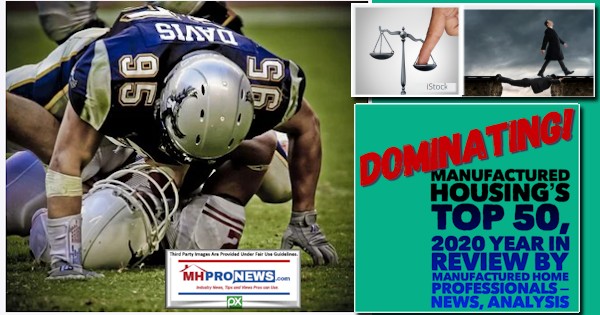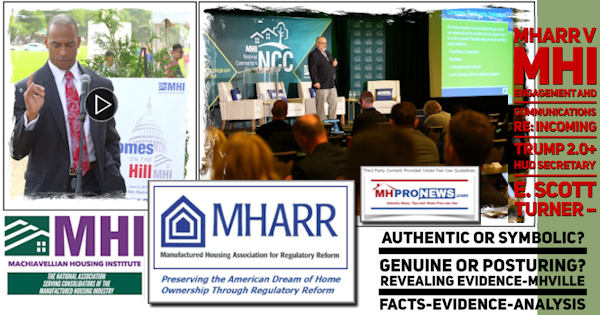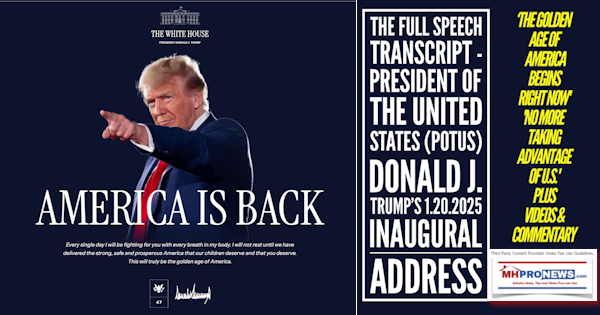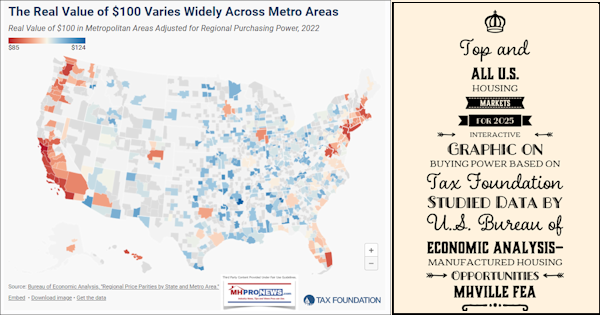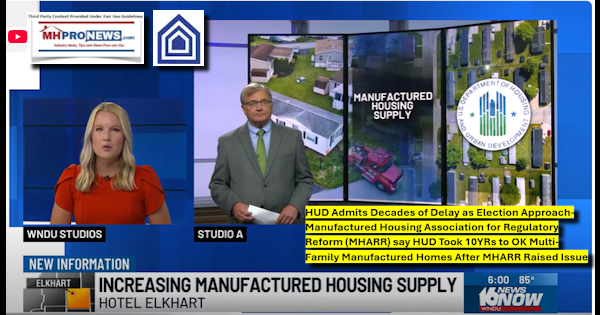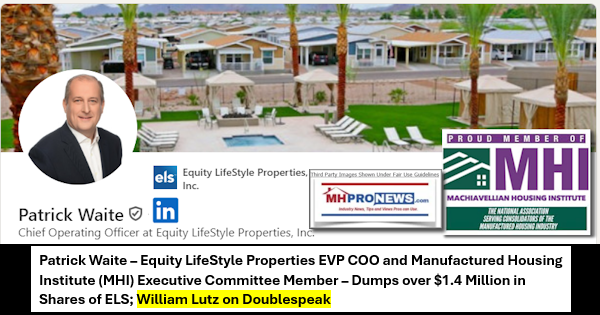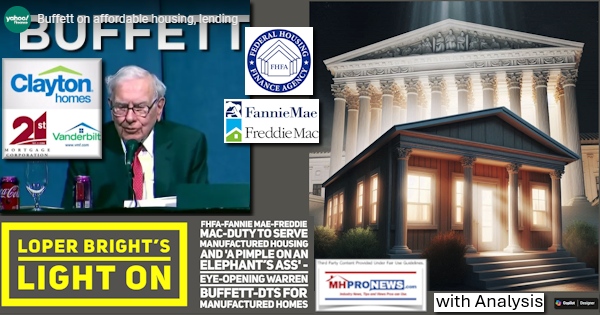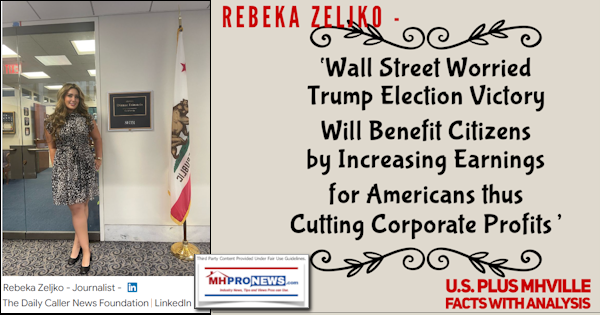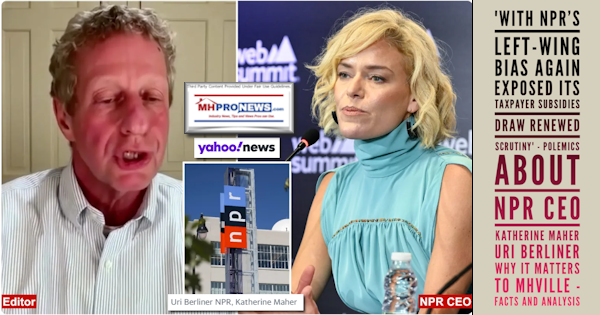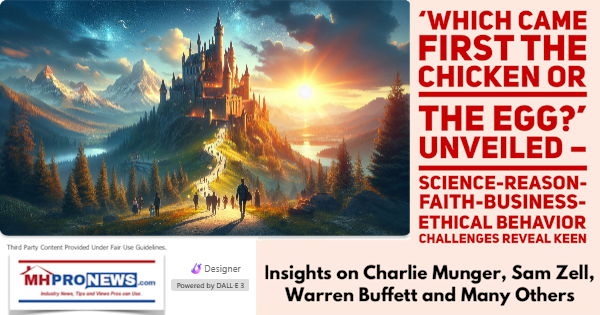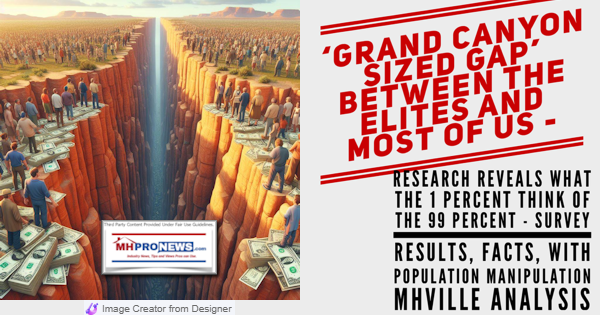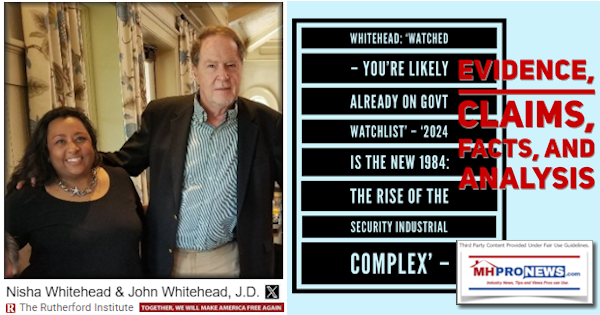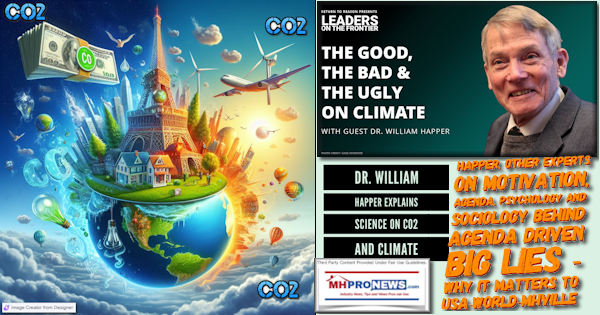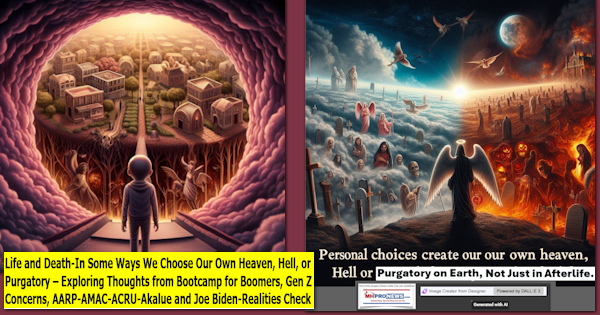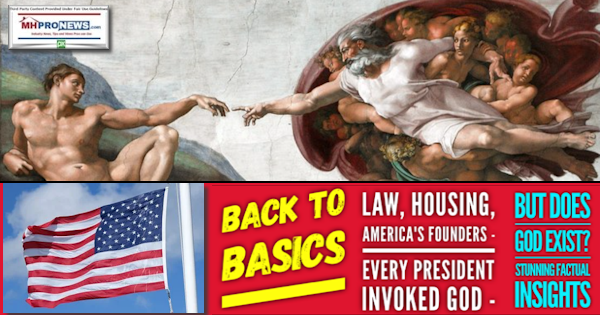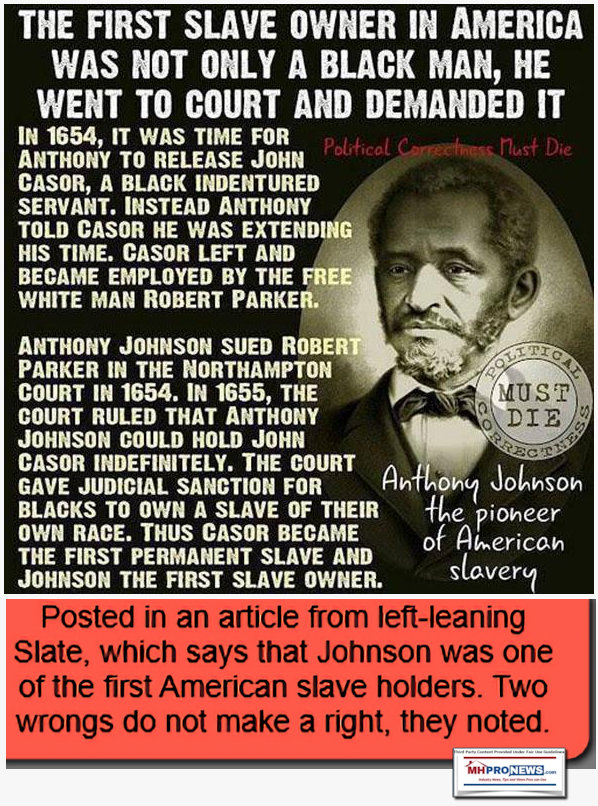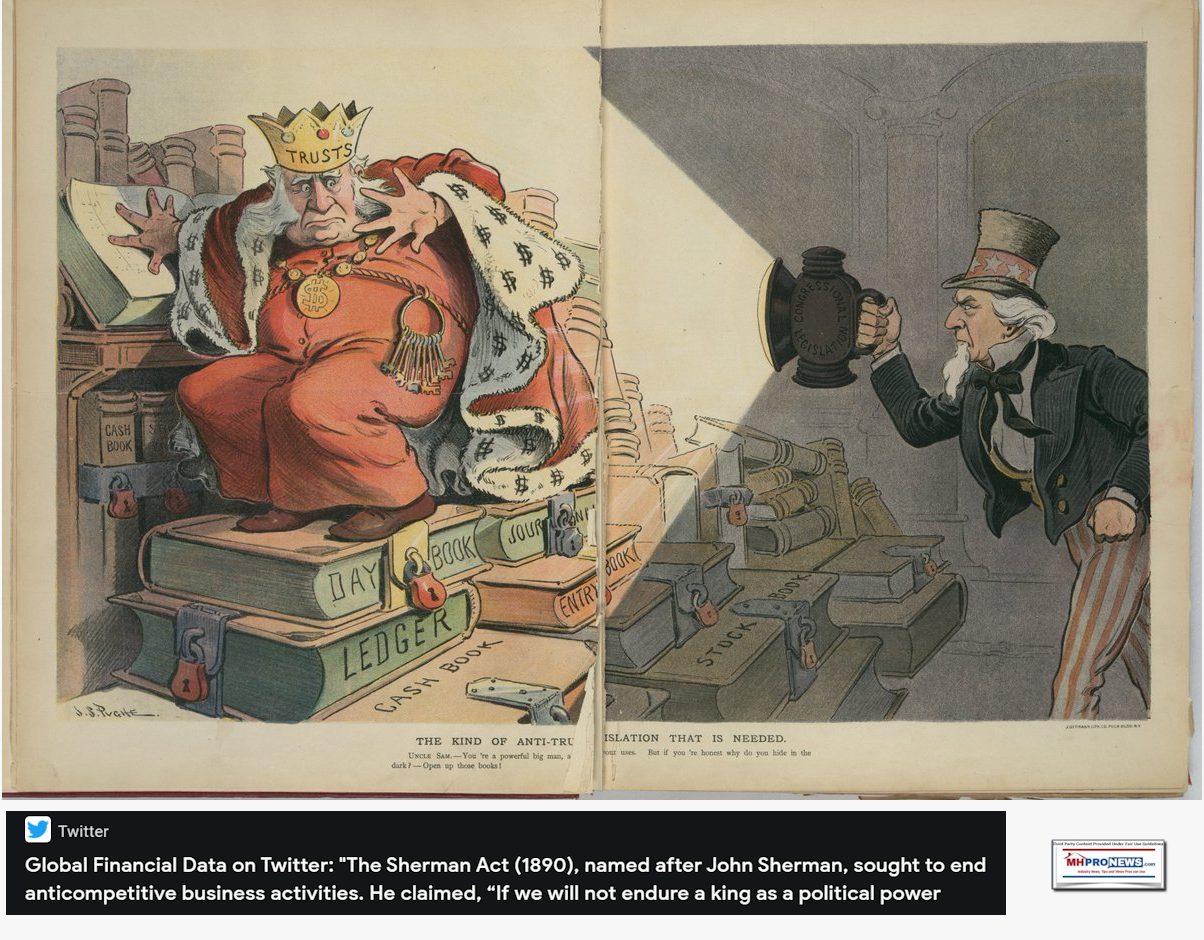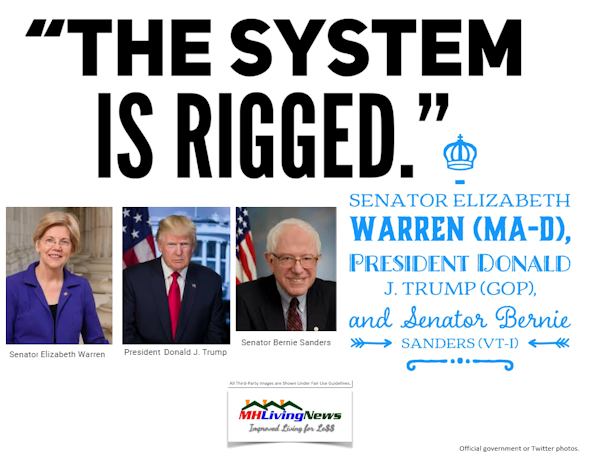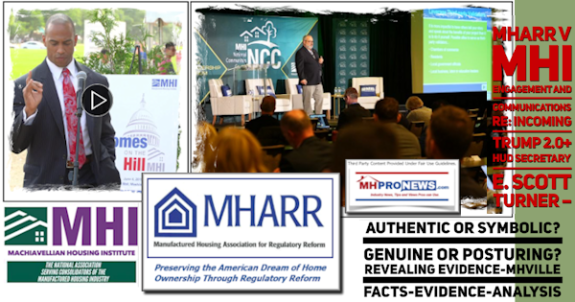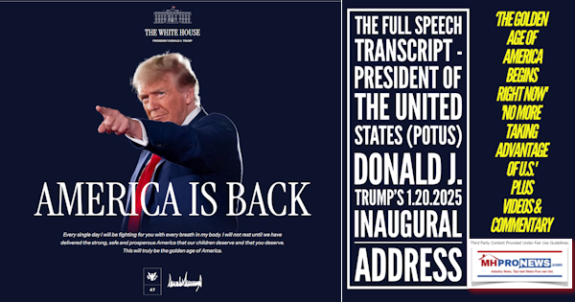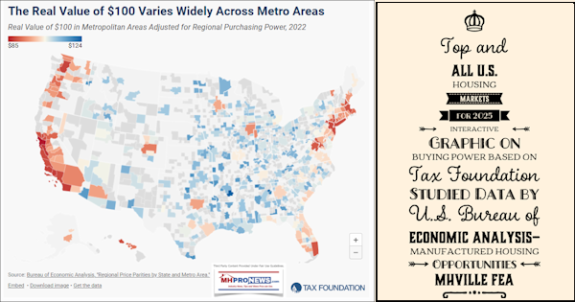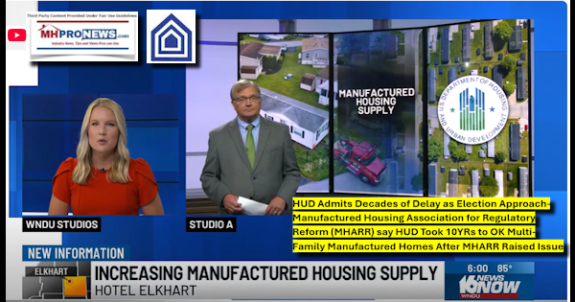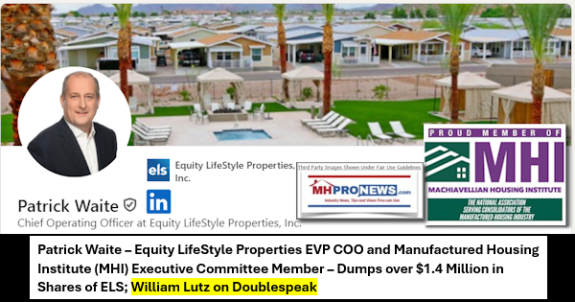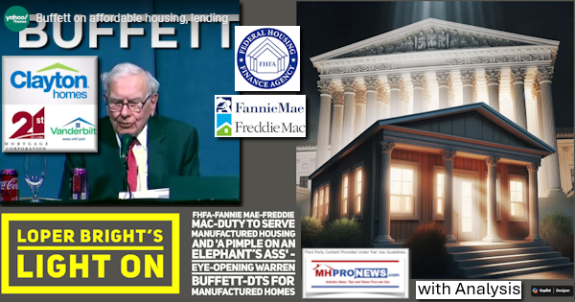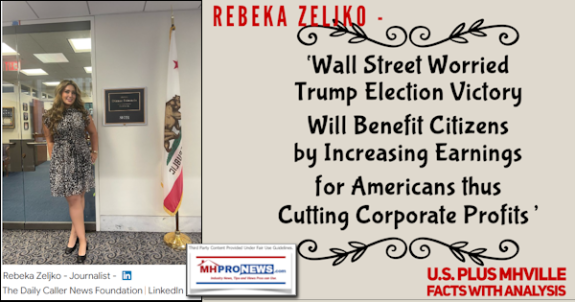Imagine millions of more households with significantly increased wealth. Or picture contemporary America with more authentic choices and greater personal freedom. While many speak about poverty, what if poverty could be dramatically reduced by making intelligent changes away from programs proven not to work by decade of experience? Note that such a national pivot to millions of more Americans with wealth would result in fewer people with extreme wealth, yet it would all be done without ‘taxing the rich.’ Such lofty ideals could be achievable by properly understanding our heritage and enforcing the timeless principles the U.S.A. was established upon. Those begin with these timeless word: “We hold these truths to be self-evident, that all men are created equal, that they are endowed by their Creator with certain unalienable Rights, that among these are Life, Liberty and the pursuit of Happiness.” – Preamble to the U.S. Constitution, per the ConstitutionCenter.org.
These goals and more are all within reach by properly understanding those famous words. How so? Because those ideals are achievable because unlocking the meaning and practical impact of the words in the U.S. Declaration of Independence could begin a revival unlike anything seen in the last 60 years of history.
Most people want the truth. Here we will present evidence and examine the truth, rather than some weaponized agenda.
How the vast majority of Americans could grasp, rationally embrace, and achieve such noble goals intended and implied in the preamble to the Declaration is what this report and analysis will focus on. This MHProNews Masthead report will do so in a step by step fashion. It will then sum up it up in the conclusion. But this word of caution is warranted. This is not magic. It is not a mere snap of the fingers. It requires a deeper understanding and thus can not be achieved by superficial reading or token efforts. To reach the mountaintop means a measure of ‘pain with gain.’

The Preamble – How Much Did the Founders Get it Right?
The preamble to the Declaration of Independence raises numerous questions for modern minds. Various movements in American history have involved a press towards an ever-greater realization of the those claims among various groups, including race, gender, property (including home) owners, etc. Let’s mention that the original draft of the preamble included the words property instead of the pursuit of happiness. That said, no specific national religion was embraced. But the existence of God – the Creator – was presumed and affirmed as being “self-evident.” So was the ideal of “unalienable Rights” and that all people (“all men”) are “created equal.” Note that the enumeration of those rights of “Life, Liberty, and the pursuit of Happiness” was not a limitation on rights, but rather a statement of examples of those “unalienable Rights.”
As an aside of some interest that sheds light on the above, on January 20, 2021, the Pew Research Center published the ‘faith’ of the various presidents of the United States. Among their notes is that almost all are Christians of one type or another. Pew cites the various branches of Christianity of each leader as is shown in the illustration below. No doubt there would be some disputes about this or that in what is shown below. But it is nevertheless of interest that every president invoked God personally and in their writings and/or spoken speeches.
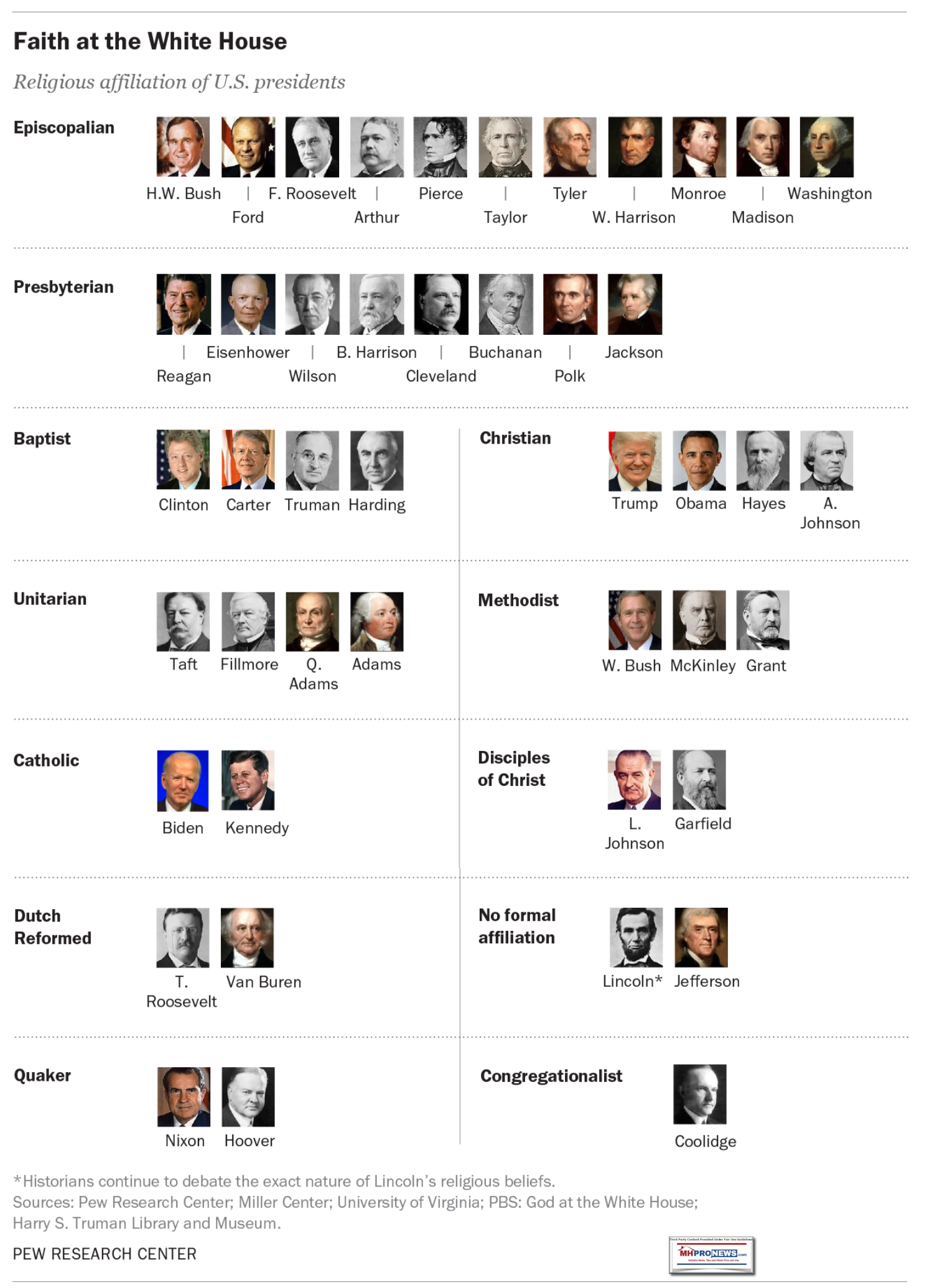
While a common claim, there is some debate over the meaning of the so-called separation of Church and State in our founding documents. That will not be the focus of this report. Suffice it for now to briefly say that some believe that the private letter written by Thomas Jefferson some years after the U.S. Constitution was adopted that mentions the “wall of separation” has been misconstrued. As John Eastman, professor of law at Chapman University, explains in the video below, “Nearly every American knows the phrase “separation between church and state.” Do you know where it’s from? Here’s a hint: it’s not in the Constitution.” Chapman adds that it has never been in the Constitution.
But perhaps a more fundamental question is, given that the founders and every president mentioned God – herein defined as the Creator all that existed at the beginning of time – should God have been mentioned at all? Has science or modern reasoning made the notion of God obsolete?
Restated, does God exist? And if God does not exist, what does that imply for our American system? Then, if God is real, what should that tell us?
After examining those questions, this report will look beyond that into the nature of modern American law vs. law some 245 years ago. For instance:
- A) Are many laws in keeping with – or not – the broad founding principles of our nation, as reflected in the preamble to the Declaration?
- B) How do modern laws and trends reflect on issues such as housing?
- C) Let’s mention that bullet B above matters for housing professionals and others too. Because property rights were often tied up with voting rights, as will be noted herein. Additionally, homeownership is the most proven way to wealth creation and is thus a path for lifting millions out of poverty and a life lived in rental housing.
This exploration of the headline topics and those listed above should be understood as introductory in nature. That noted, even this concise introduction – which will link or cite as needed various sources and evidence – will reveal some surprising insights that are important for our time.
It is no exaggeration to say that the trends in U.S. poverty and homeownership and related issues of American law, welfare, the notion of justice, rights, housing, and related, ought to be carefully considered by professionals in our industry, but also by Americans more broadly.
There are risks to a few as well as opportunities for many found in the revelations and logical conclusions from what follows.
With that foundation and brief introduction, let’s begin with the question, does God exist? That will be followed by a systematic review of the various headline and introductory issues mentioned. Then, the summary and conclusion will aim to illustrate the importance of each of these topics and why they matter now and for the foreseeable future.
Does God Exist? Can We Know, and Why Should We Care?
- D) Acorns come from oak trees. Oak trees come from acorns. Which came first?
- E) Chickens come from eggs. Eggs come from chickens. Which came first?
Science alone cannot answer these questions. But philosophy – used here as the science of thinking – can answer such paradoxical issues illustrated in bullets D and E, above. Here are a few simple examples of how rationale evidence or a “proof” is accomplished. Visualize a Creator of all things, God – Who has always existed. That eternal God created chickens, trees, and all other things that exist. Because this Omnipotent or all powerful Being we call God has always existed and will always exist, the orderly universe that we see was brought into being from nothing. Thinkers ancient and modern have held and known these truths for millennia. It is no surprise that the vast majority of people around the world throughout the ages have some belief in a Deity.
That’s not to knock science. But as the handling of COVID19 has demonstrated, science has obvious limits. Science has its place, but also its limits, as will be shown in the videos posted in this report.
Not to belittle the beliefs of Eastern or indigenous people in various parts of the world, but the three most commonly known – and two of the largest ‘world’ religious groups – existing in the time of the foundation of America where Christians, Jews, and Muslims. Of these, Jews are historically speaking the most ancient. Christianity’s founder, Jesus of Nazareth – also known as the Jesus Christ – was Jewish. Islam, the Muslim faith, was founded by the prophet Mohammed and has elements of Jewish, Christian, and other thoughts. Judaism, Christianity, and Islam all draw on their connections to the Biblical person of Abraham. These are facts.
As Pew Research noted above, almost all presidents have professed Christianity. Some ponder if President Barack Obama was in fact Muslim. For now, it will merely be noted that Pew correctly says that President Obama himself said he was Christian, while he clearly held Islam in high regard.
Why does this matter in the context of the 4th of July, law in general, human rights, or housing? Numerous reasons.
One is that the founders in the Declaration of Independence invoked the Creator. As the headline says, every U.S. president since has too. As left-leaning Wikipedia puts it, “Presidential proclamations, from the earliest days, have often been laden with religious if not explicitly Christian language.” Members of Congress have likewise routinely have called on God, by whatever name or title.
Given that God demonstrable exists, these leaders rightly called on the Divine in a range of circumstances.
Reason supplies other proofs for God’s existence. The video below does a nice job on sharing a few of those rational points. Frank Pastore in a Prager U video on YouTube notes that “Science tells us that the universe came into being via The Big Bang. But how do you get from energy and matter to a self-aware human being? That takes three additional Big Bangs that science can’t explain.”
While there are obvious distinctions between Christianity, Judaism, and Islam, the case could be made that they have more in common than what sets them apart. That’s not to minimize the differences. It is only to state the facts without getting into the details which are beyond the scope of this report.
Beyond reason, there are also evidentiary reasons to believe in God. For instance, there are demonstrable miracles that occur. Some are ancient, like the resurrection of Jesus, or the crossing of the Red Sea by the Israelites in their escape from Egypt. Muslims have their own beliefs in the miraculous too. This MHProNews Masthead won’t dive into those details today, but we will refer readers to the thoughtful evidence from the true story about a contemporary atheistic reporter who became a believer in God in what he later dubbed as the Case for Christ.
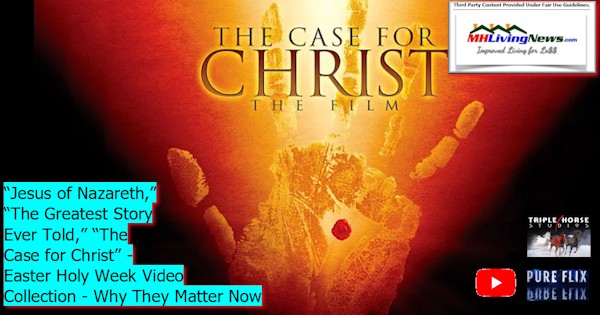
Science and what we will call “true religion” are compatible. If God created all things, and that’s reasonable to believe, then the nature that God established has certain natural laws, such as gravity. Again, we won’t dive deeper into that today. Science is a valid subset of the belief in a universal Creator. Faith and reason are not at odds, when each are properly understood. But it is worth mentioning that such thoughts were so common at the time of our nation’s founding that Thomas Jefferson said in the preamble of the Declaration that belief in a Creator of all was “self evident.” Jefferson and the founders were correct on that, and more.
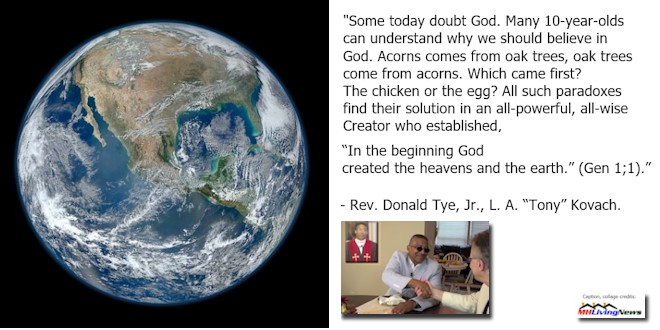
Against this backdrop, the founders of the American revolution, and presidents since that time understandably invoked God.
Sometimes presidents or other politicians might have invoked God as mere window dressing. Again, discerning the beliefs and motivations of various presidents or politicians is not the point of this analysis. Rather, once we grasp that God is Who Is – “I Am Who Am” – then many other thoughts ought to come into sharper focus. Let’s note that left-leaning Wikipedia says “The term I Am relating to God appears over 300 times in the Bible, first in the book of Genesis (15:1) and last in Revelation (22:16).” We’ll dwell for just a moment to say that once someone believes that God exists, other questions arise. As the chicken and the egg, acorns and oak trees examples revealed, nature itself suggests God exist. The fact that man and woman not only ‘fit’ – but have been necessary for humanity to continue since the beginning of human history defies the odds of evolution’s theorists. It was perhaps Drew Mariani on Relevant Radio over a decade ago who had cited a source that claimed that the odds of man and women ‘evolving’ as they have is a mind-boggling 1428 (14 to the 28th) power. That’s 14 with 28 zeroes behind it. A trillion has only 12 zeroes. Restated, God is easier to believe in than much of the radical thoughts accepted which lack any specific scientific proof at all. After all, no one was present when the Big Bang occurred. In science, there can be no evidence and repeatable proof without observation. There are ironically elements of faith present in science too.
Summed up, when you look in the mirror, you – like the founders – know that it is “self evident” that God established the universe. The Creator is the “first cause” of all that is. You and all of your ancestors could be traced back to Adam and Eve. That timeless Creator wanted you and all other human souls to exist. If we believe God is perfect and all powerful, which the three broad faiths noted herein attest, then God went a step further. The Creator revealed Godly perfection through direct revelation to humans.
That revelation of God to humanity should reasonably cause us to ponder what God wants from each of us. Indeed, each of the 3 major religions don’t make us guess what God’s will is. Each of the three ‘world’ religions noted herein tell us what God expects. While there are differences, all of the major religions forbid deception, as an example. Knowledge of the truth is good. Avoiding deception is also good, per God. That is why God revealed the history of the origins of humanity, which for Christians and Jews are found in the books of the Bible..

Properly understood, the Bible teaches that humans are equal in dignity and rights. As Jesus put it in the famous golden rule “So in everything, do to others what you would have them do to you, for this sums up the Law and the Prophets.” Matthew 7:12 New International Version (NIV) per BibleHub. The founders got those principles correct in the preamble to the Declaration, even though the fulfillment of those principles in American law took over a century to accomplish. It bears mention that not even all white men at the time of the Revolution and when the Constitution was enacted had full rights. This was not unusual in human history. After all, the Bible itself refers to various Middle Eastern people enslaving others with similar features. The history of indentured servants, serfdom, and slavery are ancient and global. That means that race, nor other issues, should be misused to foster division. That said, neither should past injustices be ignored. That is why history should be authentic, rather than allowing it to weaponized by agenda-driven voices on either side of a debate.
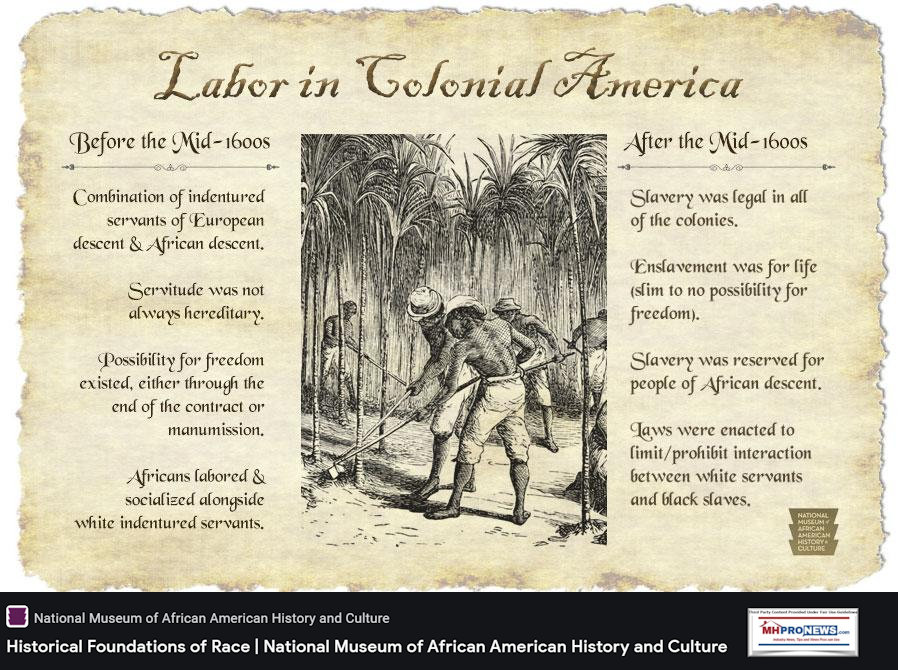
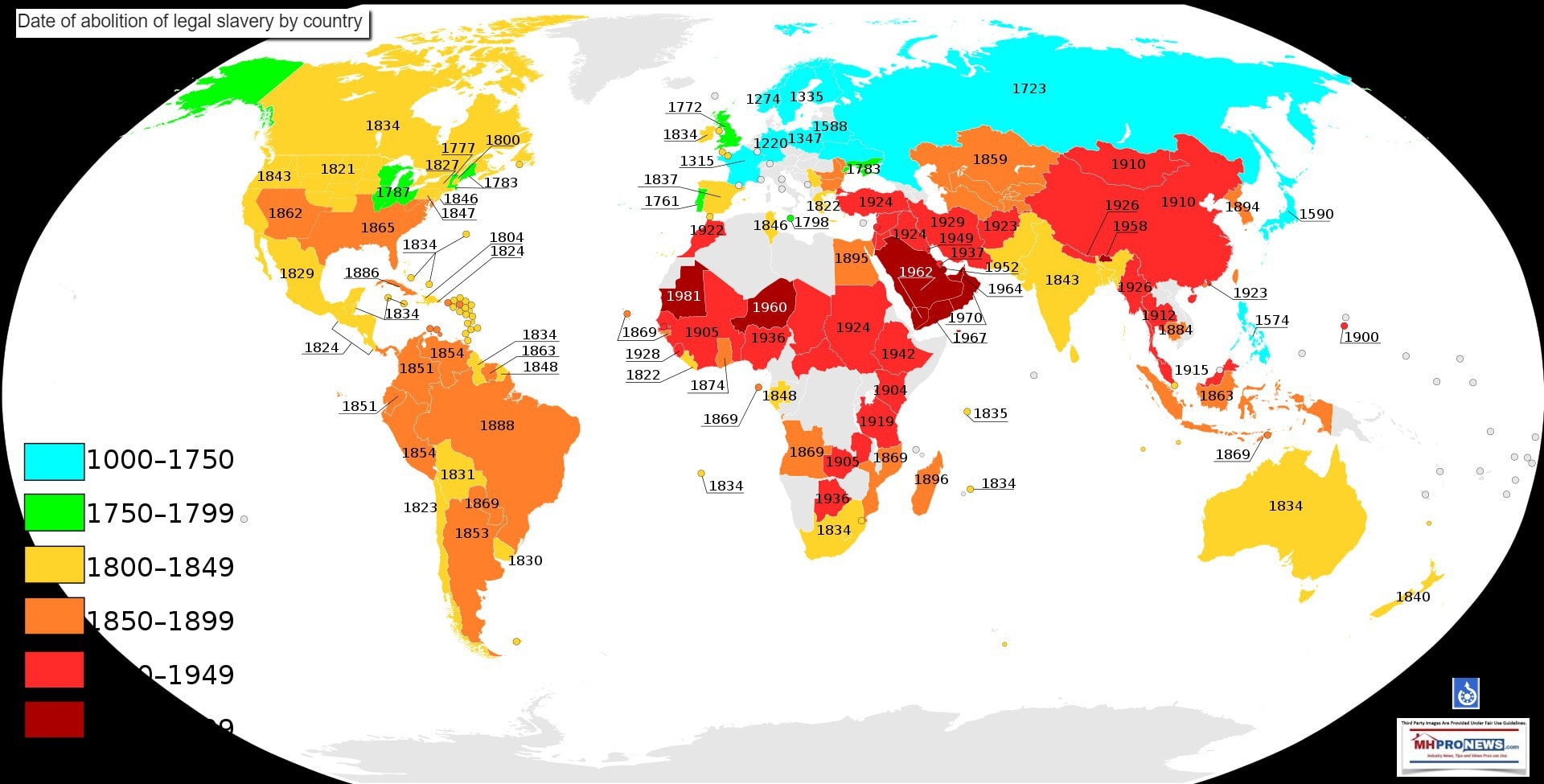
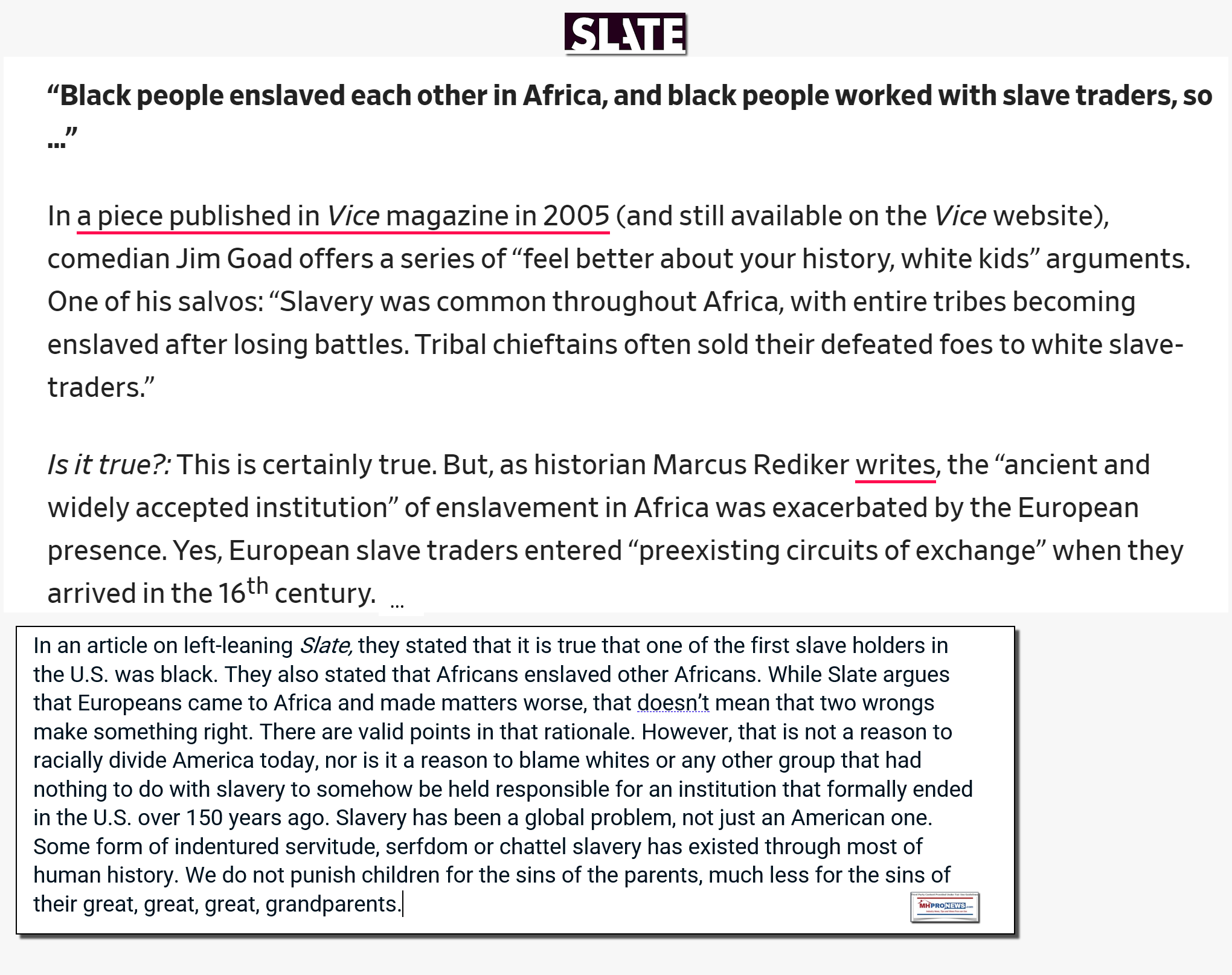
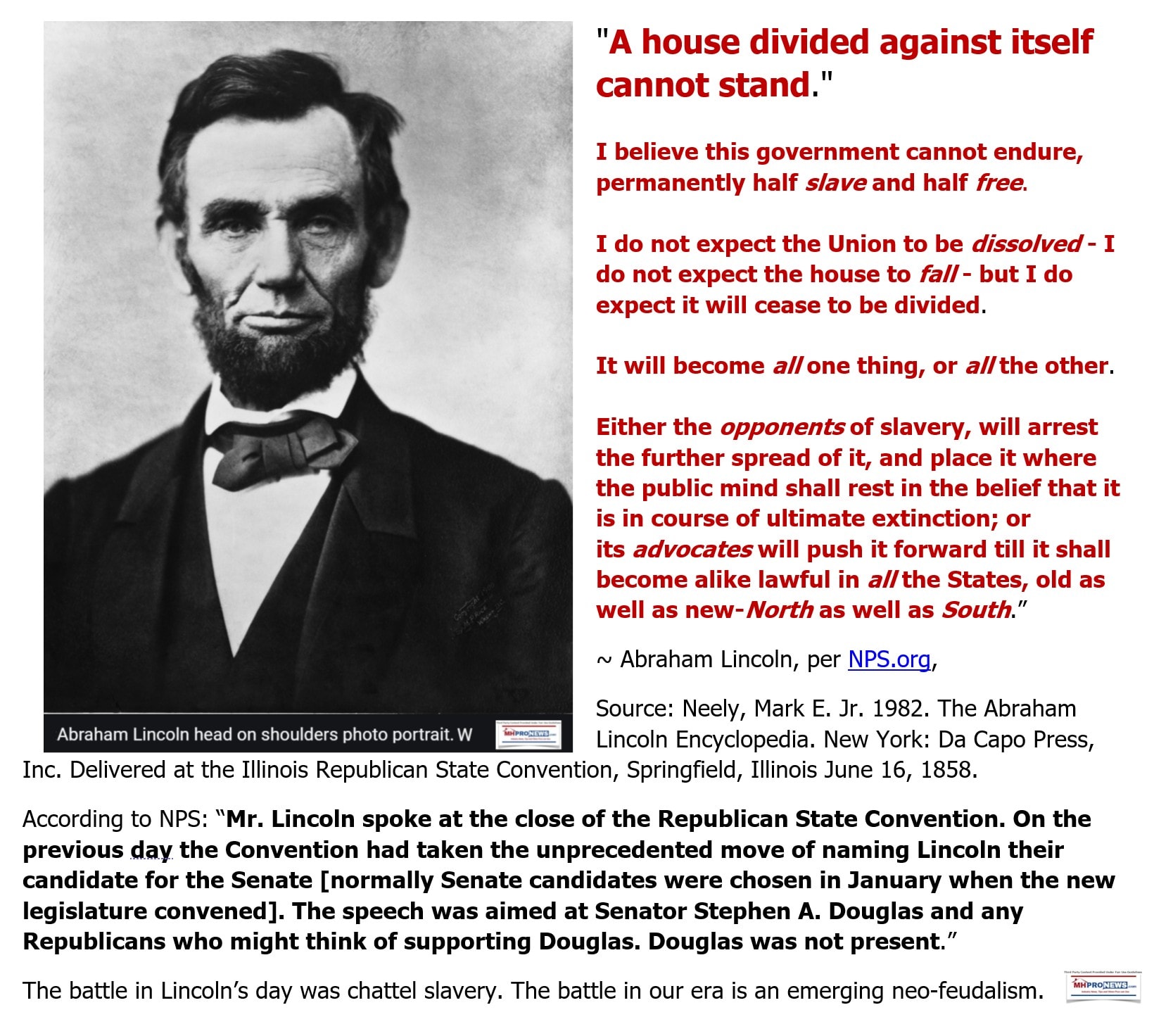
Divine Law vs. Human Law
Ballotpedia says about the U.S. Constitution that “The original document is on display at the National Archives and Records Administration in Washington, D.C. The Constitution contains 4,543 words, including the signatures of 39 of the 55 delegates representing the states.”
The Bible, both the Hebrew Scriptures (so called “Old Testament) and the Christian New Testament has 622,700 words, says Wikipedia. However, Word Counter notes that “The New International Bible (NIV): 727,969 words. English Standard Version (ESV): 757,439 words.” It should be obvious that the translation used influences the length. Catholic Bibles have 7 books accepted as inspired that numbers of Christian Churches do not accept. Depending on the Catholic version, those bibles are longer still. Let’s note for comparison that per Wikipedia, there are some 77,430 words in the Quran.
Those nuances are interesting, for reasons that will be shown in a few moments. First, let’s hone in on the Ten Commandments.
The Ten Commandments are a mere 313 words, per Answers (again, the exact count will depend on the translation).
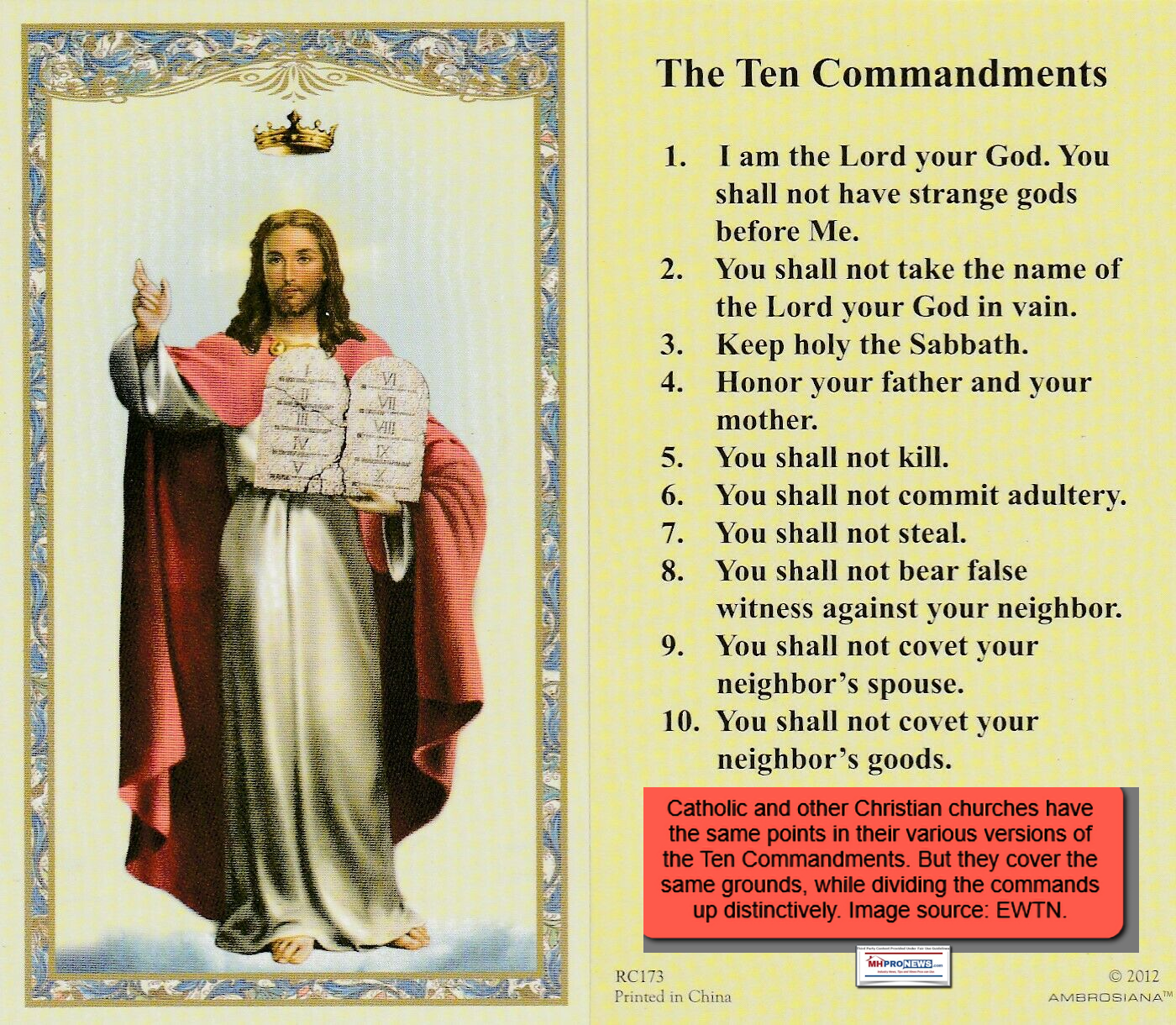
If some 313 words were deemed sufficient by God to govern Jewish society, we should ask why the Hill said in December 15, 2017 that there were about 180,000 pages in the federal codes alone. Arvix said that the U.S. Code is 22 million words! In 2010, that source said that “The United States Code (Code) is a document containing over 22 million words that represents a large and important source of Federal statutory law.” Note that means it isn’t the only source of federal law.
Clearly, that’s far too many words for most people to get their minds around. CapitalizeMyTitle says it takes about 3.3 minutes to read 1000 words. That means that reading every one of those 22 million words once would require 72,600 hours of nonstop reading.
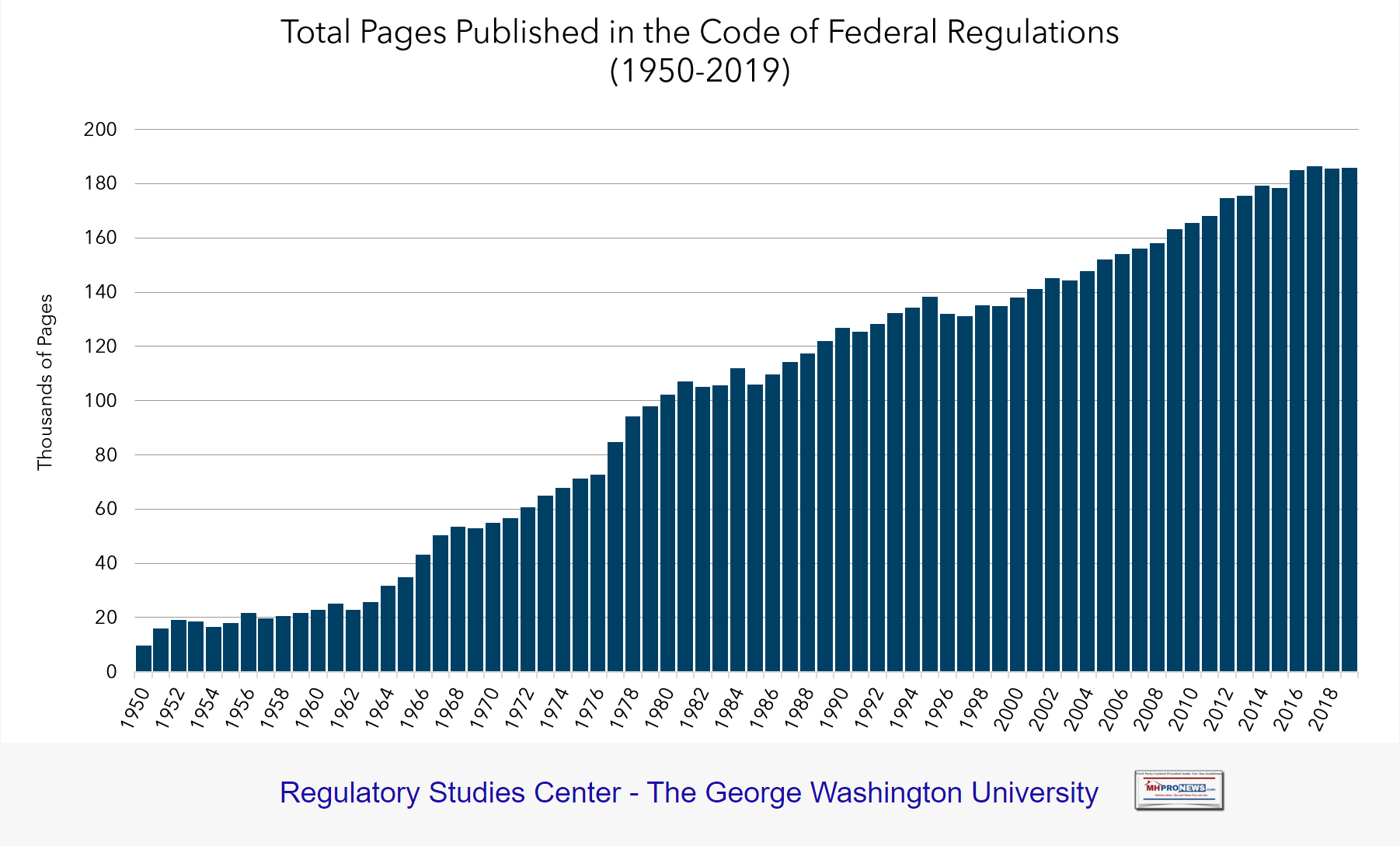
That immense volumes of law and regulation are utterly absurd. There are 8,760 hours a year. 72600/8760 = 8.28 years of nonstop reading. No food, drink, sleep or bathroom breaks. Long before someone could complete reading all of those legal mandates, other laws and regulations would have come and gone. Rephrased, this is impossible to know in the normal sense of the word. Note too, that this is only federal law. State and local laws would be in addition to these totals. This would have been abhorrent to our founding fathers. It would have been unimaginable a mere century ago.
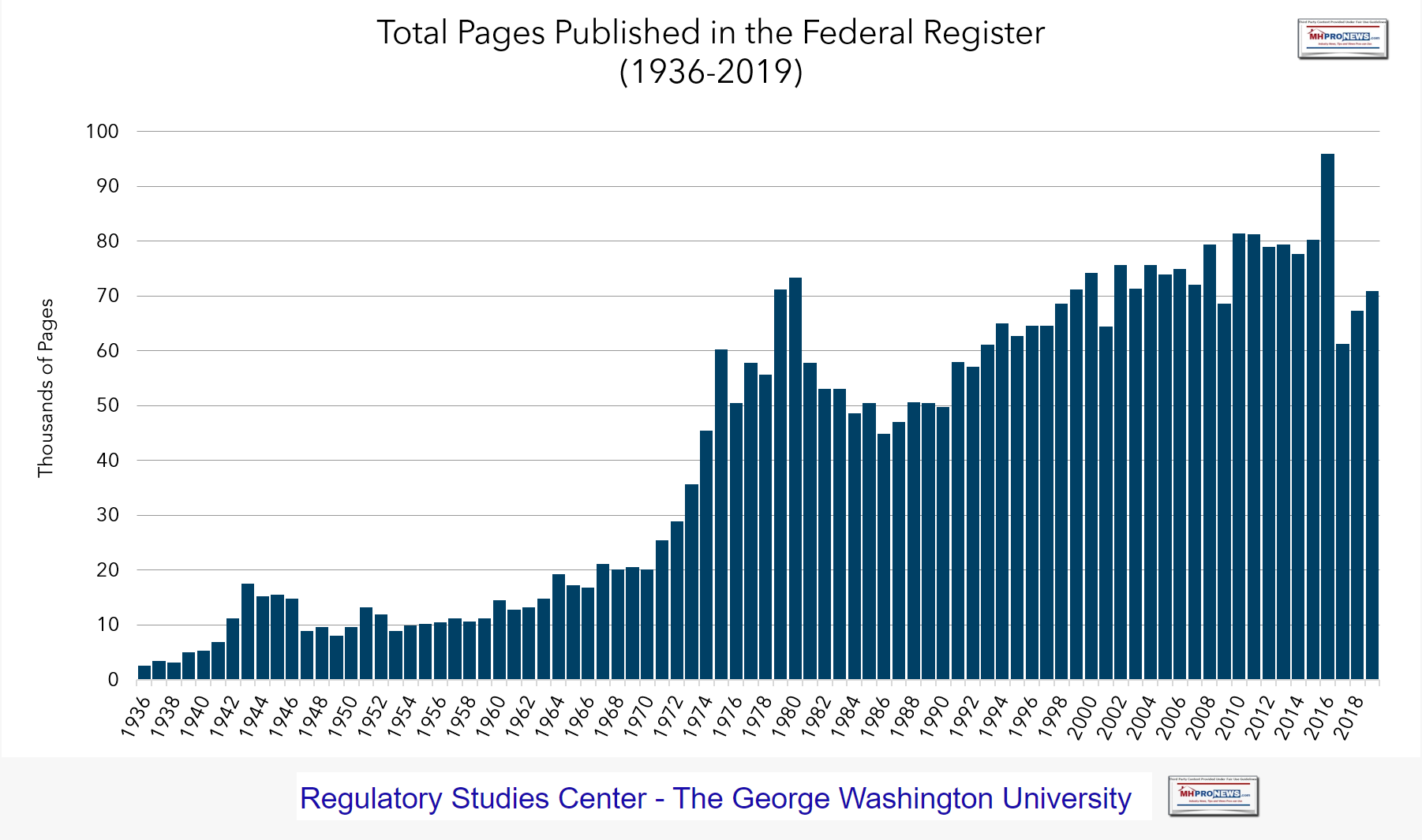
Put differently, in modem America, there is no practical way to truly know all of the laws that exist. As a book published several years ago said, you have likely violated 3 laws by noontime daily. This matters to every businessperson, professional of any kind, or every cogent adult. Here’s why.
As Wikipedia explains the legal principle: “Ignorantia juris non excusat or ignorantia legis neminem excusat (Latin for “ignorance of the law excuses not” and “ignorance of law excuses no one” respectively) is a legal principle holding that a person who is unaware of a law may not escape liability for violating that law merely by being unaware of its content.”
As the McCabe Coleman law website concurs, by saying: “The laws that exist in the United States can be complex and difficult to understand. Between state, federal, and municipal laws, there may appear to be some contradiction, making it difficult to know which act is a crime and which is not. For this reason, it is possible for a person to commit a crime without knowing.
However, is ignorance of the law a legal defense?
Can You be Arrested for Unknowingly Committing a Crime?
The short answer is yes, you can.”
When the State of New York announced an apparently politically motivated investigation into the Trump Organization, it is all but guaranteed that some violations of the law could be found, if they decided to invest enough time and resources to it. But perhaps the more important point is that the same applies to you, your business associates, family, friends, whomever. It would be impossible for the typical person to know what it is that they are supposed to do and not do.
There are simply too many laws.
That amount of law is un-American, impractical, and on several levels, un-Godly. Again, ponder the difference between some 313 words in the 10 Commandments, vs. tens of millions of words in federal laws and regulations alone.
So, while pro-Trump fans and foes are following to some degree the various election audits and election law reform, this MHProNews Masthead would note that a no less important issue is how outrageously bloated and wasteful our system of government has become. It would no doubt shock the minds of the founders, or perhaps even presidents 100 years ago, to realize how overgrown our legal system has become.
Why are there so many laws and regulations?
Clearly, they were enacted or put in place to benefit specific groups or interests. One obvious beneficiary are attorneys. The bigger the firm, the more lawyers it can afford. In the sense of the durable competitive advantage that people like Berkshire Hathaway Chairman Warren Buffett or Kevin Clayton, CEO of Clayton Homes, speak about, the law itself becomes part of their “moat.”
Now comes another vexing fact.
Many if not most of those agencies and bureaucrats at the federal level are not producing “goods” or a service in the private sector sense of the term. Much of the federal government is a big money pot that is used to transfer trillions of dollars into various private interests. Something similar is often occurring at the state and local level.
Let’s use foundation to now probe the intersection of American law, American rights, and housing.
The Law, Rights, and Housing
The U.S. Census for 1880 said that the population then were 50,150,783 people of all racial groups and backgrounds in the U.S. There were that year 8,055,812 dwellings with an average of 5.00 persons to a residence. It reported 9,945,916 families with 5.04 persons average per family.
Fast forward to the first Census that asked about homeownership, and that occurred in 1890. According to federal Department of Housing and Urban Development (HUD) research, that cites the U.S. Census records:
- F) In the 1890-1940 period, the homeownership rate fluctuated in the 43- to 48-percent range. From 1890 to 1920, the homeownership rate fell as immigration and urbanization offset the rise in income. Income growth increased the homeownership rate during the 1920s, but the Depression more than wiped out this gain so that the rate had fallen to a low of 43.6 percent by 1940.
- G) During the 1940-1960 period, the homeownership rate rose by over 18 percentage points, from 43.6 to 61.9 percent.
- H) Since 1960 the homeownership rate has remained in the 61- to 65-percent range,” said HUD in the study published in the summer of 1994.
Home ownership trends that cover the more recent years are found below.
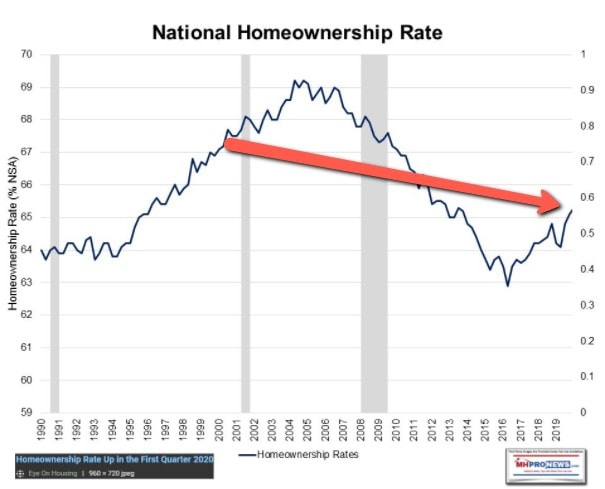
The above mattered to the early Americans, and in generations since then. When the American Republic was first established, voting was generally reserved not just to white men, but rather more specifically to those who owned property. White renters were often not included in the right to vote.
Per the Miller Center’s research summary:
“In most states, property qualifications still limited the vote to white males owning as least a fifty-acre plot of land. This voting limitation upheld Thomas Jefferson’s commitment to a rural republicanism that rested on the widespread farm ownership of relatively independent adult males. It was this republican vision that had motivated Jefferson to make the Louisiana Purchase—even though its constitutionality was in question—and to oppose primogeniture. The first promised to open up thousands of acres to farmers, thus assuring the continuation of an agrarian republic, while the latter blocked the creation of landowning dynasties controlled by inheritance to the eldest son.
Important changes, however, were afoot that would transform America from an agrarian republic to a mass democracy over the next two decades. For one thing, new, more egalitarian states had been carved out of the backcountry given to America by the British after the American Revolution. By 1803, four new frontier states had entered the Union: Vermont (1791), Kentucky (1792), Tennessee (1796), and Ohio (1803). Louisiana would follow in 1812. Most of these new states eliminated the property and taxpaying qualifications for voting, and most eastern states soon followed suit.”
Several vexing facts about history often frowns on Democrats or Republican leaders at various points in time. But there are certain things that leaders from those two major parties can be credited with that are good too. With that notion, let’s briefly consider Democratic President Andrew Jackson on housing and property rights.
According to Lumen Learning on the Jackson Administration
 “The Jackson Presidency. Andrew Jackson’s presidency was a highly controversial period characterized by Jacksonian democracy and the rise of the common man.
“The Jackson Presidency. Andrew Jackson’s presidency was a highly controversial period characterized by Jacksonian democracy and the rise of the common man.
Jacksonian Democracy
“Jacksonian democracy” refers to the period of time (roughly 1828–1840) dominated by the controversial presidency of Andrew Jackson (1829–1837). Jackson, a westerner and the hero of the Battle of New Orleans (1815), ran for the presidency in 1824 but lost to John Quincy Adams. He ran again in 1828 and won in a landslide.
Jacksonian democracy was the political movement toward greater democracy for the common man. Jackson’s policies followed Jeffersonian democracy, which had dominated the previous political era. The Democratic-Republican Party of the Jeffersonians had become factionalized in the 1820s, and Jackson’s supporters began to form the modern Democratic Party; they fought the rival Adams and anti-Jacksonian factions, which soon emerged as the Whigs.
While Jeffersonians favored educated men (though they opposed inherited elites), the Jacksonians gave little weight to education. The Whigs were the inheritors of Jeffersonian democracy in terms of promoting schools and colleges. In contrast to the Jeffersonian era, Jacksonian democracy promoted the strength of the presidency and executive branch at the expense of Congress, while also seeking to broaden the public’s participation in government. Jacksonians demanded elected (not appointed) judges and rewrote many state constitutions to reflect these new values. There was usually a consensus among both Jacksonians and Whigs that battles over slavery should be avoided.
The Philosophy
Jacksonian democracy was built on the principles of expanded suffrage, Manifest Destiny, patronage, strict constructionism, and laissez-faire economics.” …##
##
Expanded suffrage meant expanded voting rights. While the Democrat Jackson did that in his time, Republican leaders later did it for blacks and then women, among other groups. Much of the century of civil and voting rights achievements of the post-Civil War era are attributable to Republican efforts, which came at times with some Democratic support too. There have long been a mixture of good and problematic among members of the major parties, a principle that holds for minor parties too.
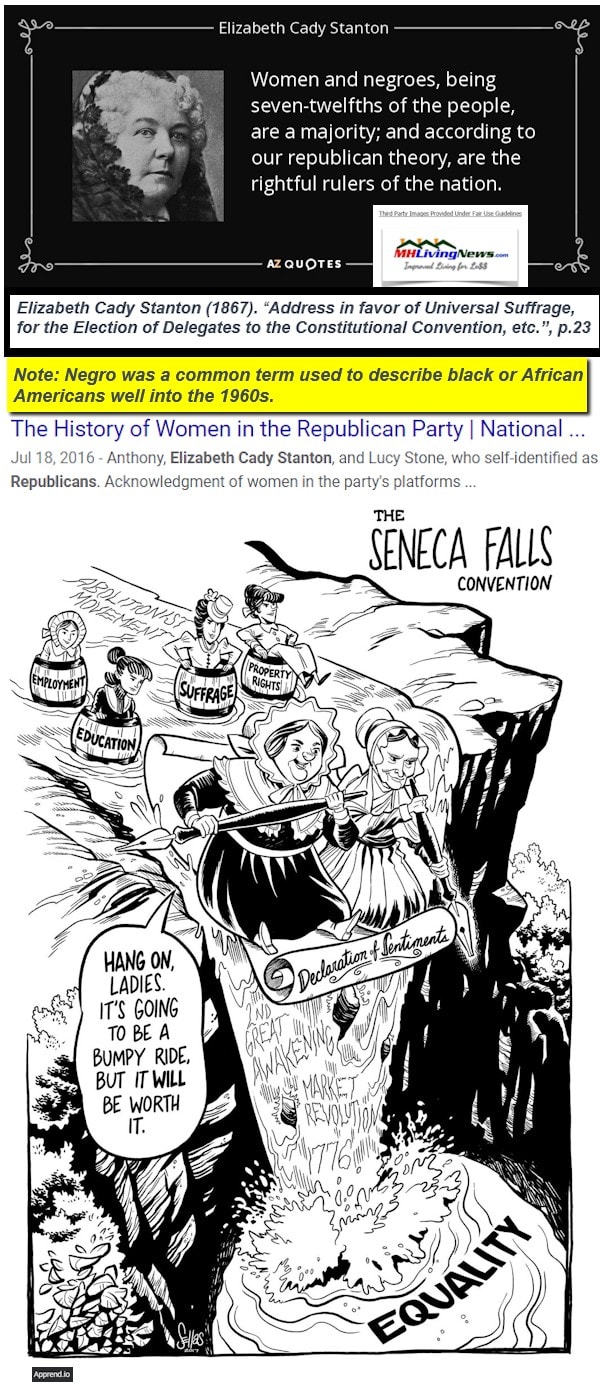
That noted, let’s look at laissez-faire economics, because it is an important part of understanding the America Way.
Says Investopedia: “Laissez-faire is an economic philosophy of free-market capitalism that opposes government intervention. The theory of laissez-faire was developed by the French Physiocrats during the 18th century and believes that economic success is more likely the less governments are involved in business.”
On Flag Day 2021 – Jun 14, 2021 — the Britannica encyclopedia said “Laissez-faire, also called laissez-faire economics, a policy that advocates minimum interference by government in the economic affairs of individuals and society. The French phrase mean “leave us alone,” meaning limit government interference.” Britannica aptly notes that this form of economics influenced Adam Smith. Adam Smith in turn influenced America’s founders and leaders for some time.
“Laissez-faire was a political as well as an economic doctrine,” said Britannica. ”The pervading theory of the 19th century was that individuals, pursuing their own desired ends, would thereby achieve the best results for the society of which they were part. The function of the state was to maintain order and security and to avoid interference with the initiative of individuals in pursuit of their own desired goals. But laissez-faire advocates nonetheless argued that government had an essential role in enforcing contracts as well as ensuring civil order.”
Now freeze frame right there. Limited human government was quite the norm established by the 10 Commandments. For generations, there were judges that settled contract or legal disputes. But God was seen as the true ruler of the ancient Israelites. It wasn’t until the time of the prophet Samuel that the Jewish people asked for and were given a king, like other nations around them had.
Per the NIV (New International Version) in 1 Samuel chapter 8 as cited by the Bible Gateway. The numbers following the number 8 (for Chapter 8, verse 1) before a phrase are verse numbers for reference purposes.
8 When Samuel grew old, he appointed his sons as Israel’s leaders.[a] 2 The name of his firstborn was Joel and the name of his second was Abijah, and they served at Beersheba. 3 But his sons did not follow his ways. They turned aside after dishonest gain and accepted bribes and perverted justice.
4 So all the elders of Israel gathered together and came to Samuel at Ramah. 5 They said to him, “You are old, and your sons do not follow your ways; now appoint a king to lead[b] us, such as all the other nations have.”
6 But when they said, “Give us a king to lead us,” this displeased Samuel; so he prayed to the Lord. 7 And the Lord told him: “Listen to all that the people are saying to you; it is not you they have rejected, but they have rejected me as their king. 8 As they have done from the day I brought them up out of Egypt until this day, forsaking me and serving other gods, so they are doing to you. 9 Now listen to them; but warn them solemnly and let them know what the king who will reign over them will claim as his rights.”
10 Samuel told all the words of the Lord to the people who were asking him for a king. 11 He said, “This is what the king who will reign over you will claim as his rights: He will take your sons and make them serve with his chariots and horses, and they will run in front of his chariots. 12 Some he will assign to be commanders of thousands and commanders of fifties, and others to plow his ground and reap his harvest, and still others to make weapons of war and equipment for his chariots. 13 He will take your daughters to be perfumers and cooks and bakers. 14 He will take the best of your fields and vineyards and olive groves and give them to his attendants. 15 He will take a tenth of your grain and of your vintage and give it to his officials and attendants. 16 Your male and female servants and the best of your cattle[c] and donkeys he will take for his own use. 17 He will take a tenth of your flocks, and you yourselves will become his slaves. 18 When that day comes, you will cry out for relief from the king you have chosen, but the Lord will not answer you in that day.”
19 But the people refused to listen to Samuel. “No!” they said. “We want a king over us. 20 Then we will be like all the other nations, with a king to lead us and to go out before us and fight our battles.”
21 When Samuel heard all that the people said, he repeated it before the Lord. 22 The Lord answered, “Listen to them and give them a king.” ##
###
Rephrased, God warned the people that there would be corruption if there was a king. That is in fact what occurred. That happened not only with the kings of Israel, but with all kings and other governments around the world.
That noted, because America’s founders knew history and the Bible, they threw off the often arbitrary yoke of English rulers. Laissez-faire or free markets plus maximum political rights meant minimal government interference. These notions of limiting government to protect human rights were common beliefs among the American people. The modern notion of big government to protect rights has been proven after decades not to work. The reason should be obvious. Humans are prone to error. Having more human control over society only increases the odds of such errors. It is the evidence of history that was based in part on religious beliefs. To the point of the preamble of the Declaration, the founders knew that limiting government and overturning a corrupt English system was necessary for Americans to be free.
Religious references by the various founders during various periods underscores these points. The quote from the nation’s first president makes that clear.
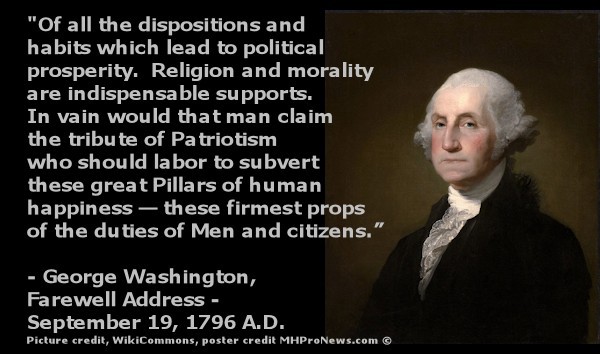
In the Journal of Economic Perspectives in an article entitled “Retrospectives Between God and the Market: The Religious Roots of the American Economic Association” is this insight from coauthors Professors Bradley W. Bateman and Ethan B. Kapstein.
“…in the 19th century, the American ethos was largely derivative of a Protestant self-identity. Moreover, through most of the 19th century, the Protestant churches were among the most vehement voices in American society in favor of laissez-faire economic policies and against the possibility of class conflict.1 Not only was laissez-faire preached from the pulpit, but several of America’s most prominent economists in the 19th century were also Protestant ministers: both Francis Wayland (who became president of Brown University) and John MacVickar, for example, were prominent economics textbook authors who propounded a “secularized Protestant ethos of production for an expanding commercial society.” The footnote 1 above reads: “For an excellent treatment of the evolution of arguments about laissez-faire and class in American society from 1770-1870, see (Bradley W.) Burke (1995).”
While various Protestant branches of Christianity was the most common form of belief in first century of the American Republic, as more Catholics came to America, their economic thought influenced economic and political matters too.
As Fordham University noted in the abstract of a peer-reviewed doctoral dissertation, “how nineteenth- and early-twentieth-century, secular, solidarist economics and social thought” was complimented, challenged, and influenced by the writings of how nineteenth- and early-twentieth-century, secular, solidarist economics and social thought that included the thinking of a Catholic bishop and two Catholic Jesuit order priests. “Bishop Wilhelm von Ketteler, Matteo Liberatore, S.J., and Heinrich Pesch, S.J., served as the economic foundation of modern Catholic social teaching in Pope Leo XIII’s 1891 encyclical Rerum novarum.” That Latin phrase, Rerum novarum, means about the “new things.”
Per Citeco.fr – “In 1891, Pope Leo XIII issued the first encyclical relating to Catholic doctrine on social and economic issues. Its name, Rerum novarum, means « of new things » and the document was a response to the industrial revolution that had been taking place since the 18th century, and the emergence of liberal and subsequently Marxist economic theories.
Leo XIII outlined a third way, in between these two theories, which asserted workers’ rights, but opposed any notion of class struggle. Catholic doctrine reiterated the basic economic principles of Christianity, and notably affirmed the following: the right of property ownership, tempered by the duty to provide for the common good and to use that property for the benefit of others; a fair wage; charity towards the poor; freedom of association for workers. State intervention was permitted but had to follow the principle of subsidiarity, i.e. it should be restricted to matters that could not be settled by other competent authorities (family, associations, unions, local authorities).”
Into the early 20th century, British thinkers like G.K. Chesterton and Hillarie Belloc, building on Pope Leo’s work, made the intellectual and historic case in favor of smaller businesses over bigger ones and the widest possible distribution of private property rights. While some have referred to these principles as solidarity and subsidiarity, which Pope John Paul II and others have referenced, Chesterton and Belloc also used the phrase “distributism” to reflect this distinction between big capitalism and socialist thought.
Says Wikipedia: “Distributism is an economic theory asserting that the world’s productive assets should be widely owned rather than concentrated.[1] Developed in the late 19th and early 20th centuries, distributism was based upon the principles of Catholic social teaching, especially the teachings of Pope Leo XIII in his encyclical Rerum novarum (1891) and Pope Pius XI in Quadragesimo anno (1931).[2][3][4]
Distributism views both [unchecked] laissez-faire capitalism and state socialism as equally flawed and exploitative, favoring economic mechanisms such as cooperatives and member-owned mutual organizations as well as small businesses and large-scale competition law reform such as antitrust regulations.”
As Chesterton.org succinctly says: “Chesterton’s Distributism is centered on the idea that to end state socialism and prevent capitalist monopolies there must be a predominance of small ownership.”
In hindsight, Jefferson and other founding fathers rejected monopolies. As MHProNews has previously referenced several times this quote, in which Jefferson urged for the adoption of a bill of rights (which he got) but he also urged for restrictions on monopolies, which he did not get.
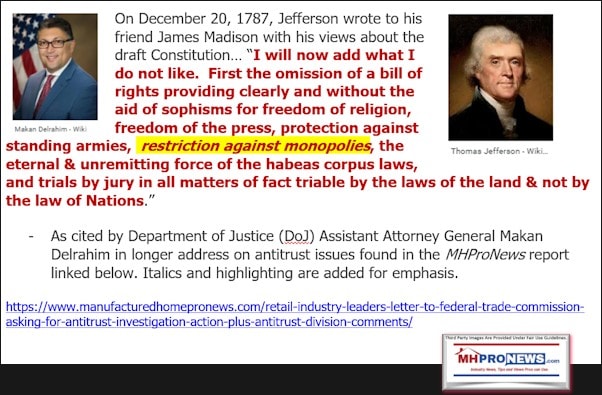
More specific restriction on monopolies at the federal level did not formally occur at the national level until the late 19th and early 20th centuries.
Per Stanford University “In the Supreme Court case of Wabash, St. Louis, and Pacific Railway Company v. Illinois, it was ruled that “no state can exercise any control over commerce which passes beyond its limits.” This ruling completely reversed previously enacted legislation. To this day, regulation of interstate commerce falls in the hands of the federal government.
Federal regulation of businesses officially began in 1887, with the passing of the Interstate Commerce Act. This created the first independent regulatory commission. It was originally “devised to apply technical expertise and a semi judicial and less partisan approach to the regulation of complex affairs.”
That began with “the Sherman Antitrust Act was passed in 1890,” said Investopedia. Per Wikipedia, Senator John Sherman used this argument to gain passage of the bill. “If we will not endure a king as a political power we should not endure a king over the production, transportation, and sale of any of the necessaries of life,” Senator Sherman said. Congress passed the Sherman Antitrust Act almost unanimously in 1890.
Stanford University notes that “In 1914, the Clayton Anti-Trust Act was passed to prohibit discrimination in prices among purchasers, exclusive deals tying a purchaser to a single supplier, and any action that “substantially lessens competition or tends to create a monopoly.” At this time, the Federal Trade Commission was created to “prevent the unlawful suppression of competition.”
As we have previously reported, antitrust law in the U.S. has languished under both Democratic and Republican administrations in the late 20th and early 21st century.
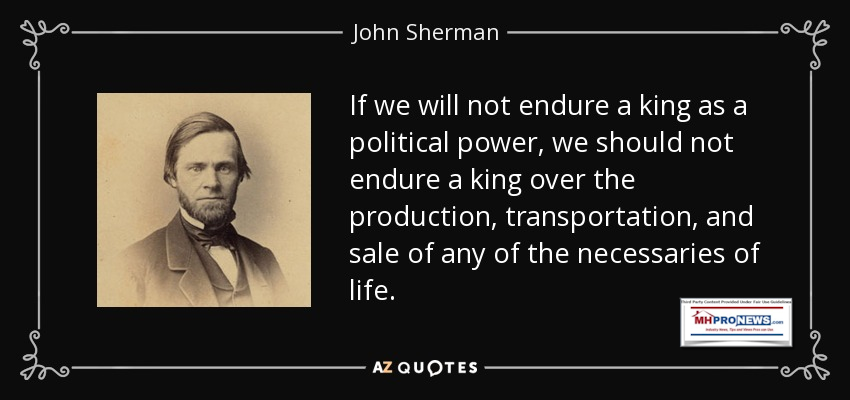
Summing Up and Looking Ahead
America was founded on religious beliefs, which were largely in keeping with Christian thought. God as Creator and the Divine will were and still should be viewed as knowable, self-evident, and demonstrable.
God’s law is summed up on several ways in the 10 Commandments. Those commands regulate God’s relationship to humanity, as well as people’s relationships with each other. In the New Testament period, without contradicting the 10 planks of the commandments, Jesus summed them up by saying that people should love God and love their neighbor as themselves. Meaning, we should treat others as we would want others to treat us.
As Americans ponder the problems of our era, much of it can be boiled down to drifting away from both God’s law and America’s founding principles as they evolved into a more complete achievement of what the preamble to the Declaration of Independence pledged.
Once more:
- “We hold these truths to be self-evident, that all men are created equal, that they are endowed by their Creator with certain unalienable Rights, that among these are Life, Liberty and the pursuit of Happiness.”
Those words have over time captured the imagination of billions around the world since they were first made public. A written constitution that limited the power of the government was a cornerstone of the American Revolution. The revolutionaries revolted not only against taxes but also the British crown monopoly on tea.
The battle for human freedom is not just about ending slavery, as important as that is. The struggle for human liberty is also connected with the ability of some to manipulate the markets in ways that benefit themselves while harming others. That market manipulation is often called monopolization.
To this day, monopolies can only exist if they are explicitly or implicitly allowed to by government. Senator Sherman’s point, quoted above, was preceded by Thomas Jefferson about a century before.
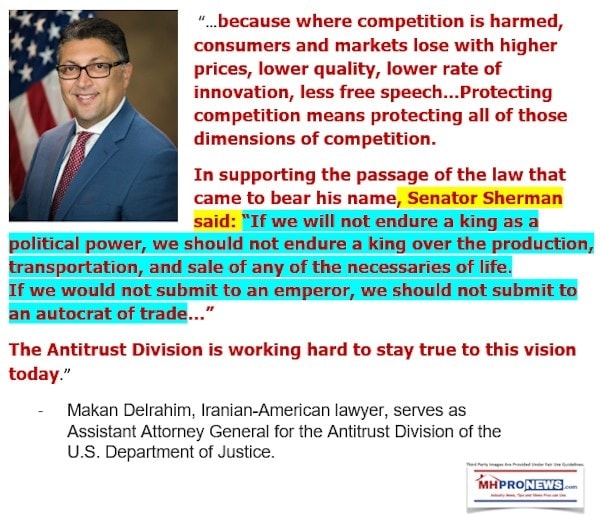
Complexity in law benefits those with greater wealth and resources. That complexity in turn makes the slow- but-steady creation over time of de facto monopolies possible.
Restated, our system has been corrupted. That has occurred in slow motion. But by looking back at the outrageous volume of law and complexity that has grown up like weeds during the last century, it is now obvious that our nation is being manipulated by a ruling elite. This is a view expressed by many across the left-right divide. It is not a conspiracy theory, it is a demonstrable reality as this deep dive makes plain.
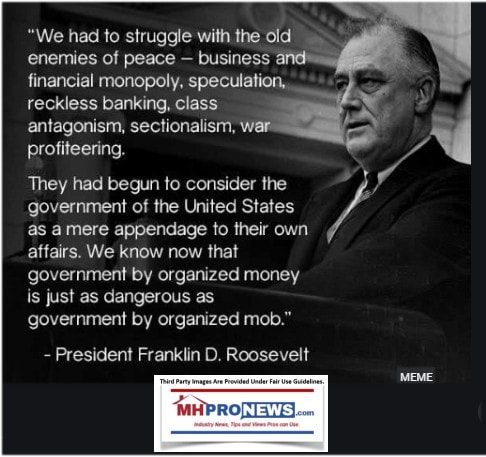

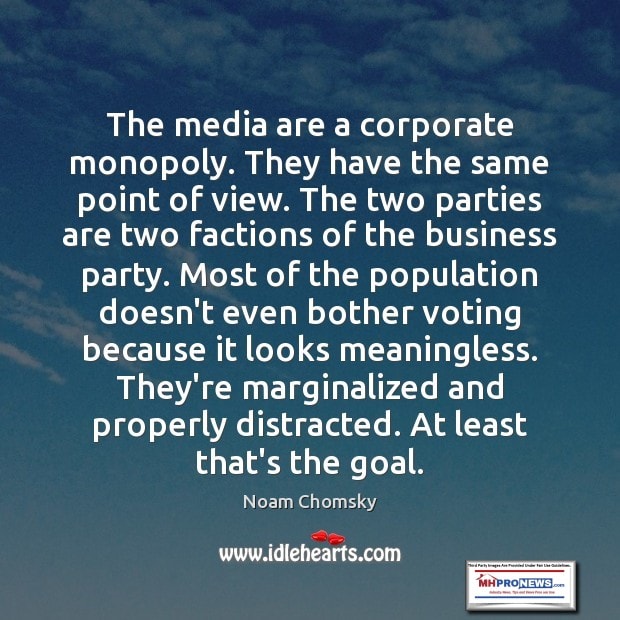
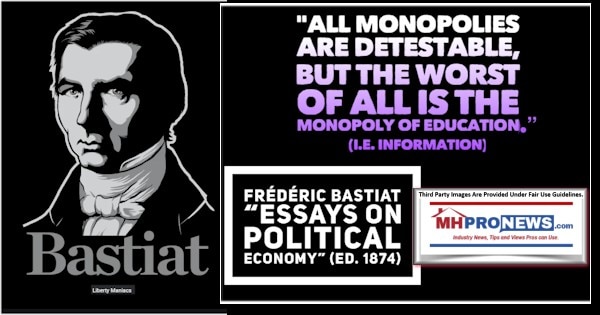
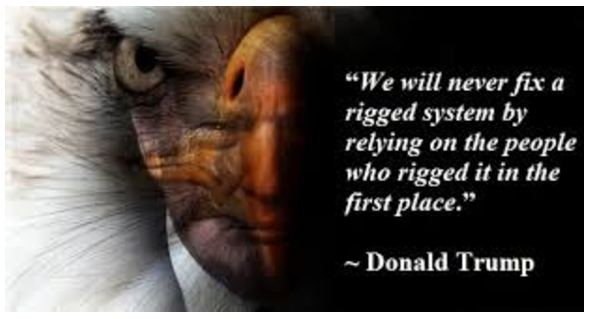
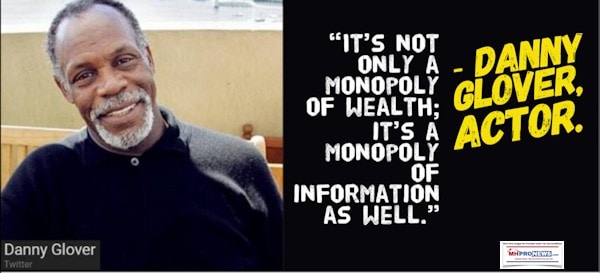
When we look at the growing threat of feudalism, the words of Senator Sherman and Scripture should both ring out in our minds. God warned against kings. Sherman warned against robber barons that essentially ruled or controlled like a king. While we do not have a single such economic ruler, there is a collection of oligarchs that effectively rule over our nation.
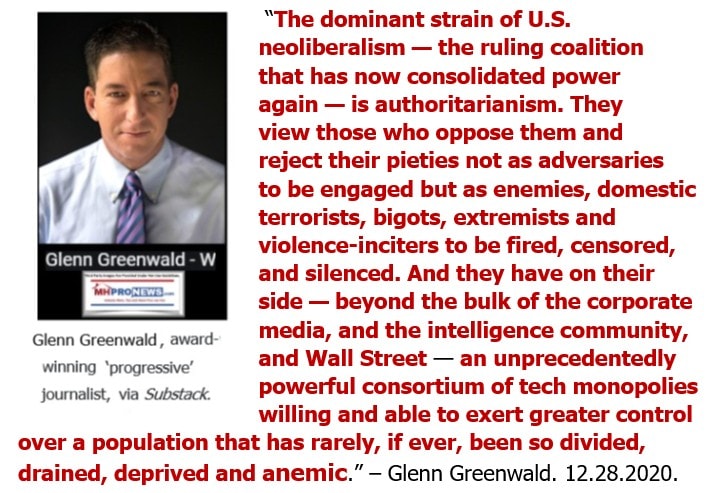
Who says so? Let’s look at some examples, starting with recent ones from Berkshire Hathaway’s Warren Buffett and Charlie Munger.
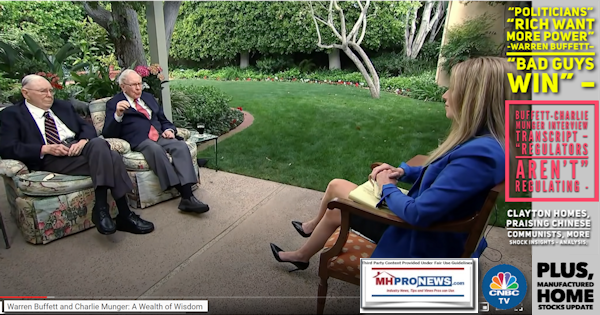

Affordable housing is an essential for a society. Manufactured homes provide that, and federal law – at least on paper – protects and fosters that right.

Without breaking up the oligarchs and their monopolistic methods by use of RICO, antitrust, Hobbs Act and other existing laws, American freedom will only be an illusion. On this 4th of July, it is vital that we grasp the nature and meaning of our founding, understand how those God-given and Constitutionally protected rights have slowly slipped away.
Beyond breaking up the ruling oligarchs and voting out of office those who do their bidding, winding back the dizzying array of federal, state, and local laws must occur too.
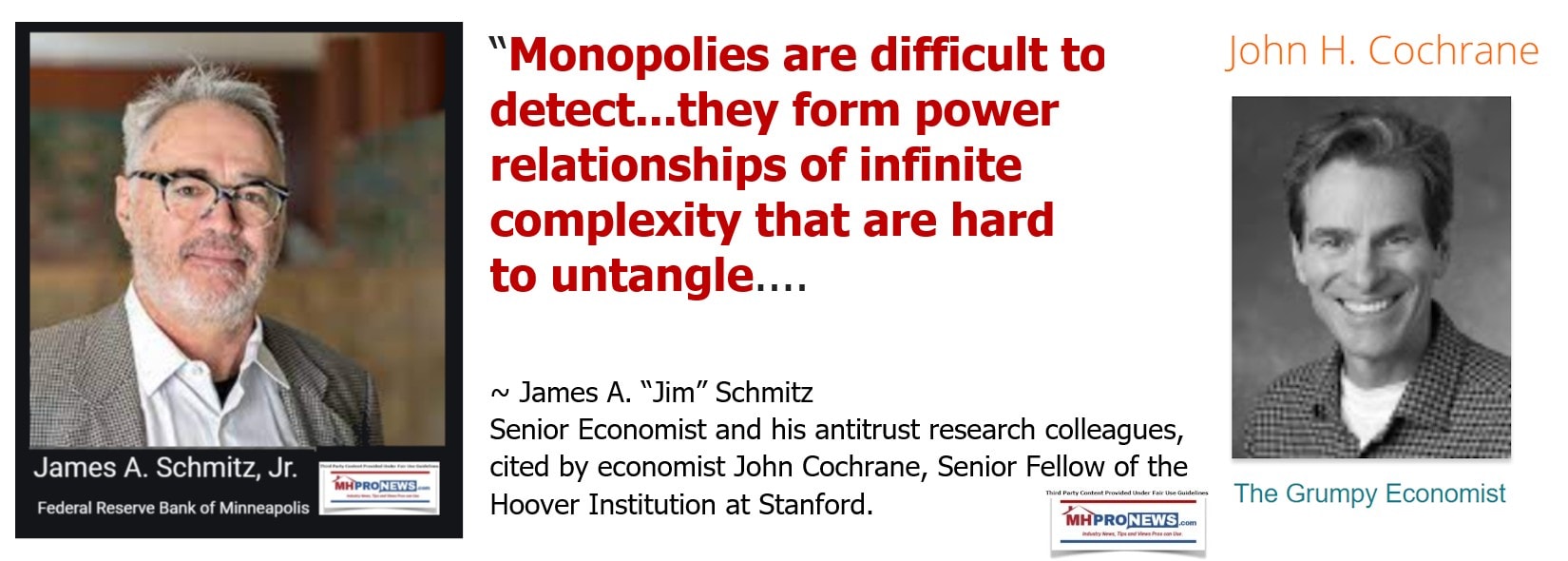
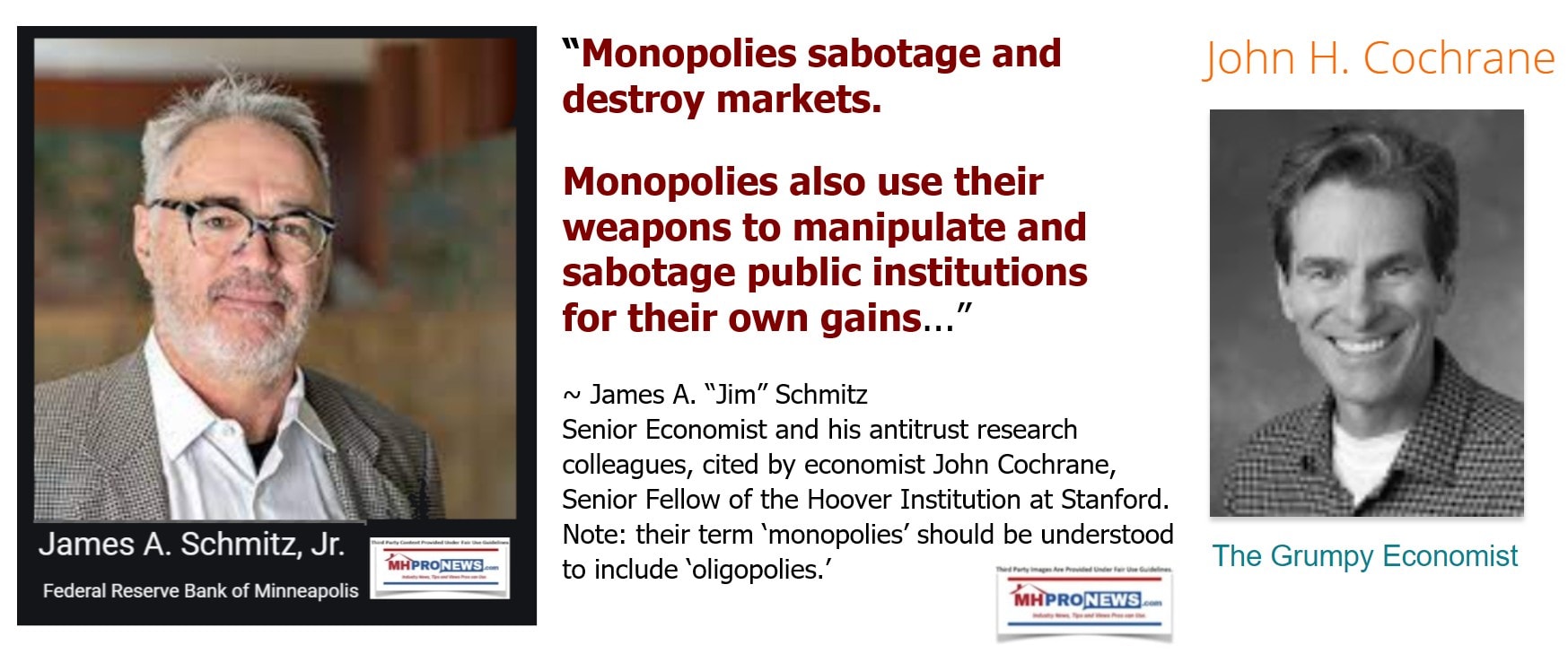
Like his methods or not, President Donald J. Trump challenged the status quo in part by rolling back regulations (some of those volumes of laws), as well as by other methods that aimed for and achieved an increase in home ownership and growing income for working class and other Americans. Whether or not President Trump will return to office is an open question at this time. But what is certain is that more of what he began must be done. Otherwise, the powerful and their political cronies will only continue to consolidate their de facto rule over America. Who says? Ironically, Warren Buffett and others like him
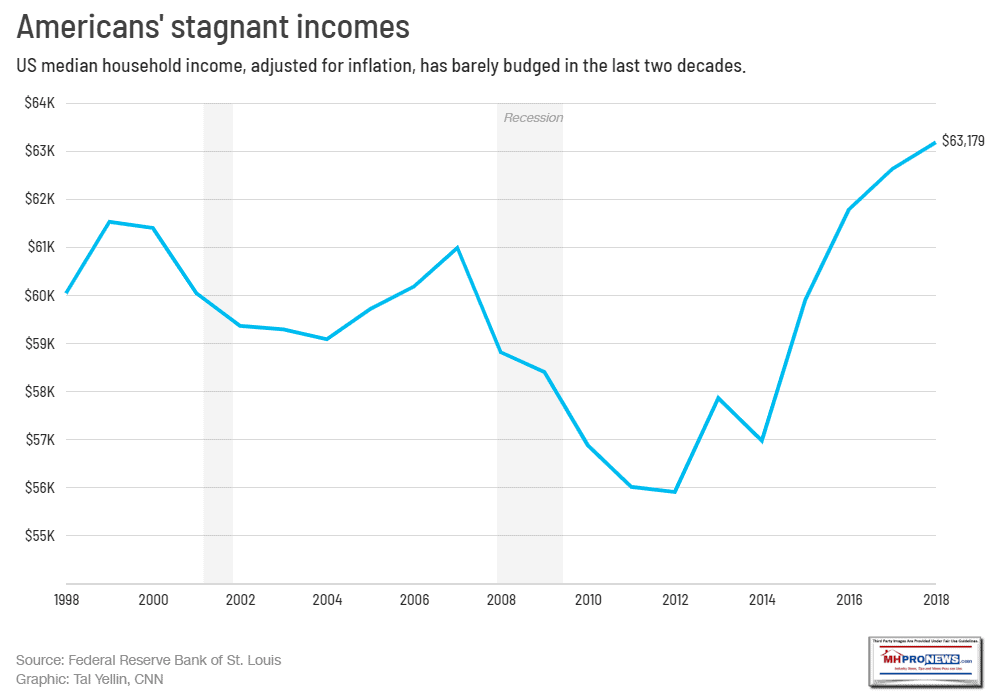
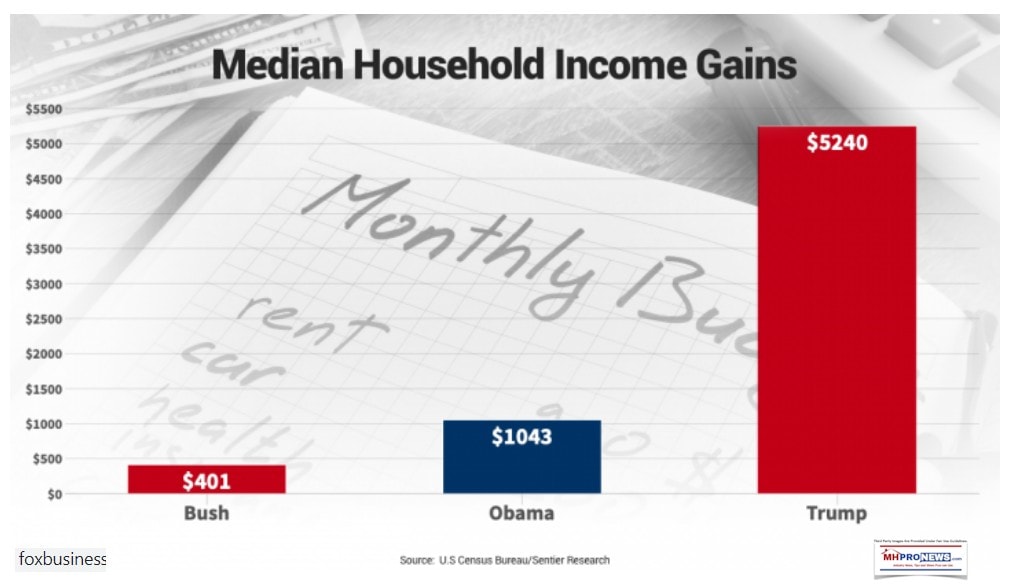
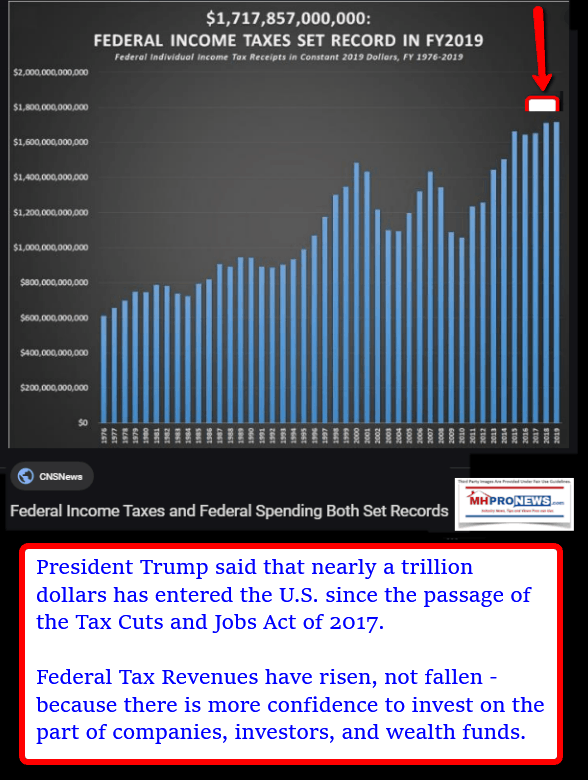
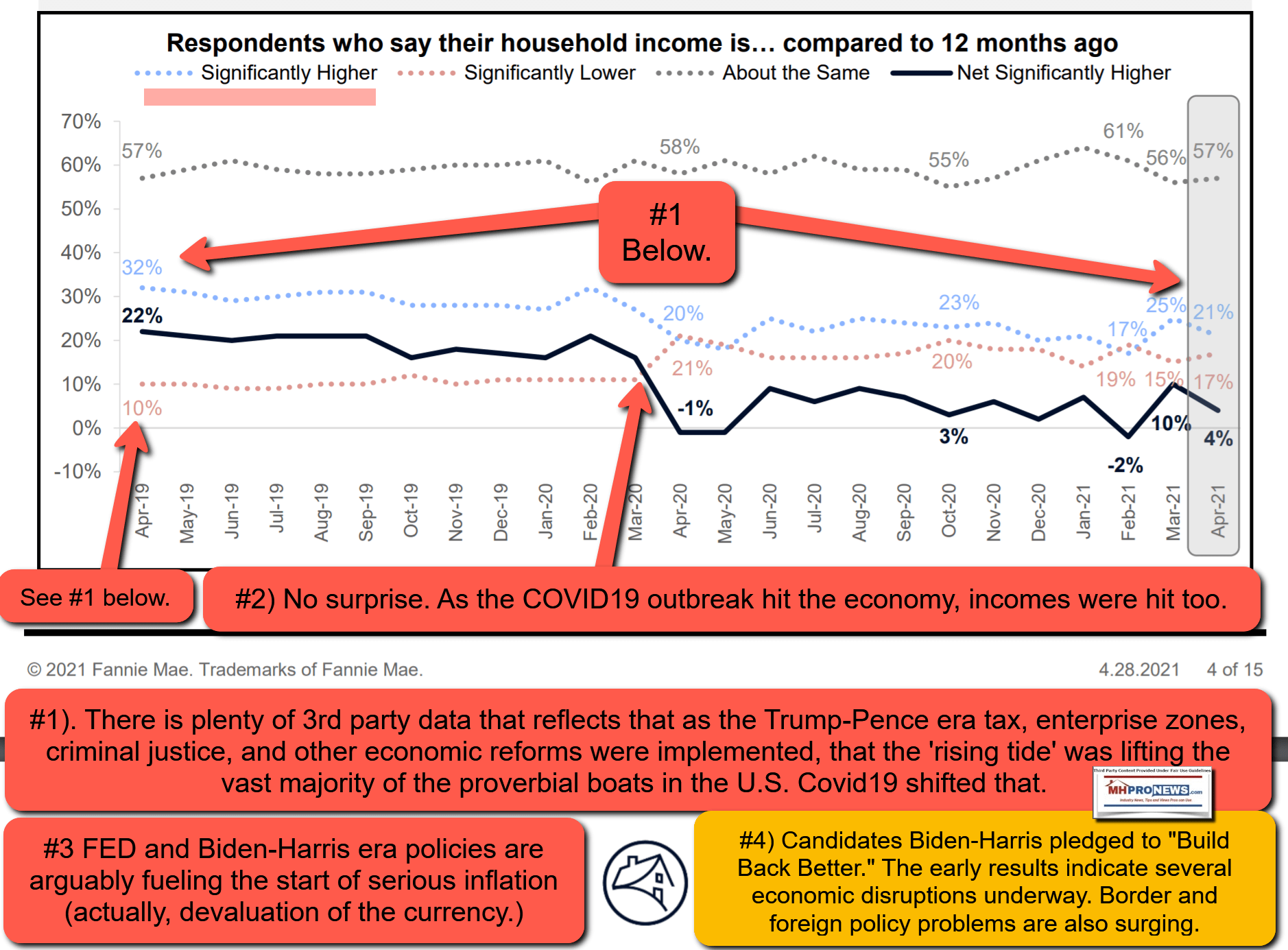
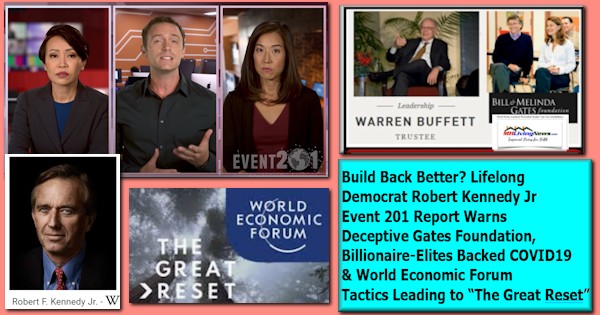
We began this report and analysis with these words. “More households with increased wealth. Greater personal freedom. Far fewer in poverty. More total people with wealth, but fewer people with extreme wealth. Those ideals would be achievable by properly understanding our heritage and enforcing the timeless principles the U.S.A. was established upon.” That’s the promise of America. Socialism is proven not to deliver that in every nation that it has ever been tried. Runaway crony capitalism is proven not to bring that outcome about either. It is the middle way, the American Way, that is in many ways the Godly Way. We must better understand how these notions are true. Only by grasping the realities and then lawfully and intelligently fighting the good fight to restore these ideals that we can achieve the great promise our founders pledged their lives, fortunes and sacred honors to give us today.
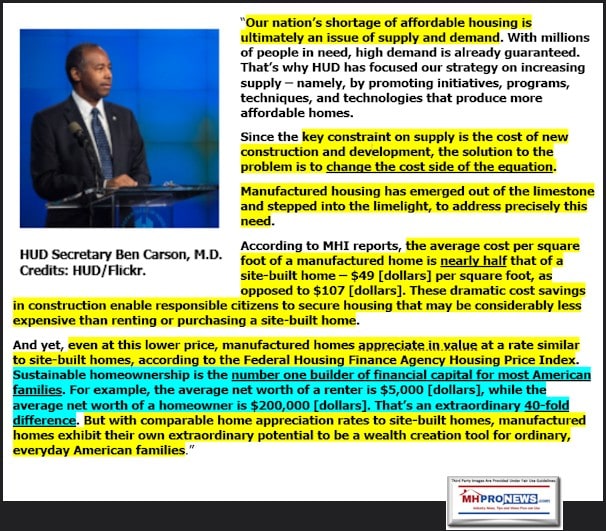
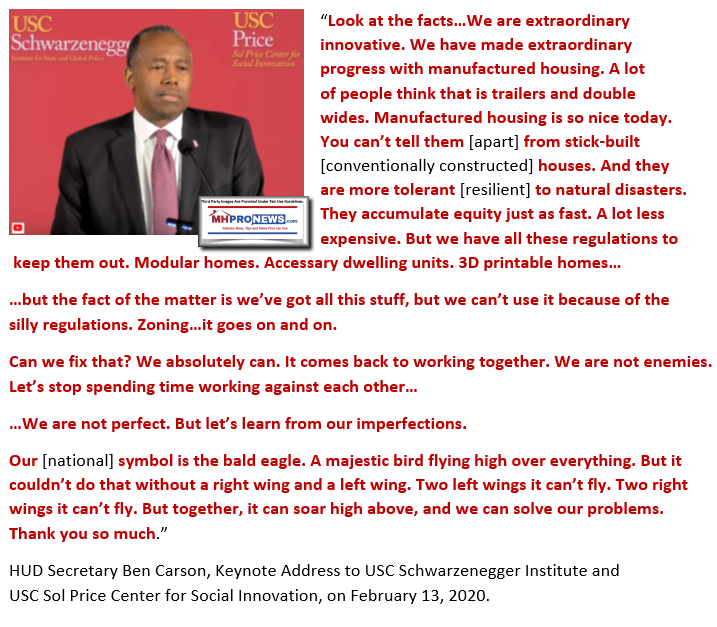
[cp_popup display=”inline” style_id=”139941″ step_id = “1”][/cp_popup]

UPDATE and Notice to MHI members. Follow up emails to several MHI linked attorneys – not one disputed the claim by the law firm cited in the report below.
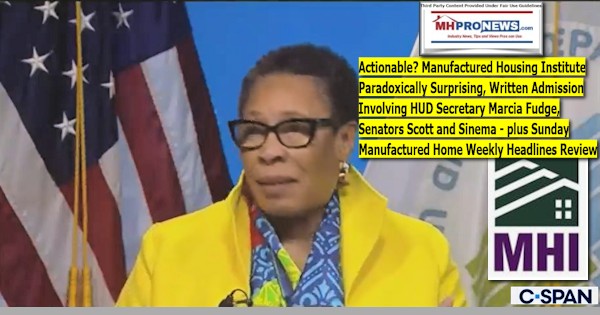

Stay tuned for more of what is ‘behind the curtains’ as well as what is obvious and in your face reports. It is all here, at the runaway largest and most-read source for authentic manufactured home “News through the lens of manufactured homes and factory-built housing” © where “We Provide, You Decide.” © ## (Affordable housing, manufactured homes, reports, fact-checks, analysis, and commentary. Third-party images or content are provided under fair use guidelines for media.) (See Related Reports, further below. Text/image boxes often are hot-linked to other reports that can be access by clicking on them.)

By L.A. “Tony” Kovach – for MHProNews.com.
Tony earned a journalism scholarship and earned numerous awards in history and in manufactured housing.
For example, he earned the prestigious Lottinville Award in history from the University of Oklahoma, where he studied history and business management. He’s a managing member and co-founder of LifeStyle Factory Homes, LLC, the parent company to MHProNews, and MHLivingNews.com.
This article reflects the LLC’s and/or the writer’s position, and may or may not reflect the views of sponsors or supporters.
Connect on LinkedIn: http://www.linkedin.com/in/latonykovach
Related References:
The text/image boxes below are linked to other reports, which can be accessed by clicking on them.



